

MUSIC KENNESAW
BAILEY SCHOOL OF
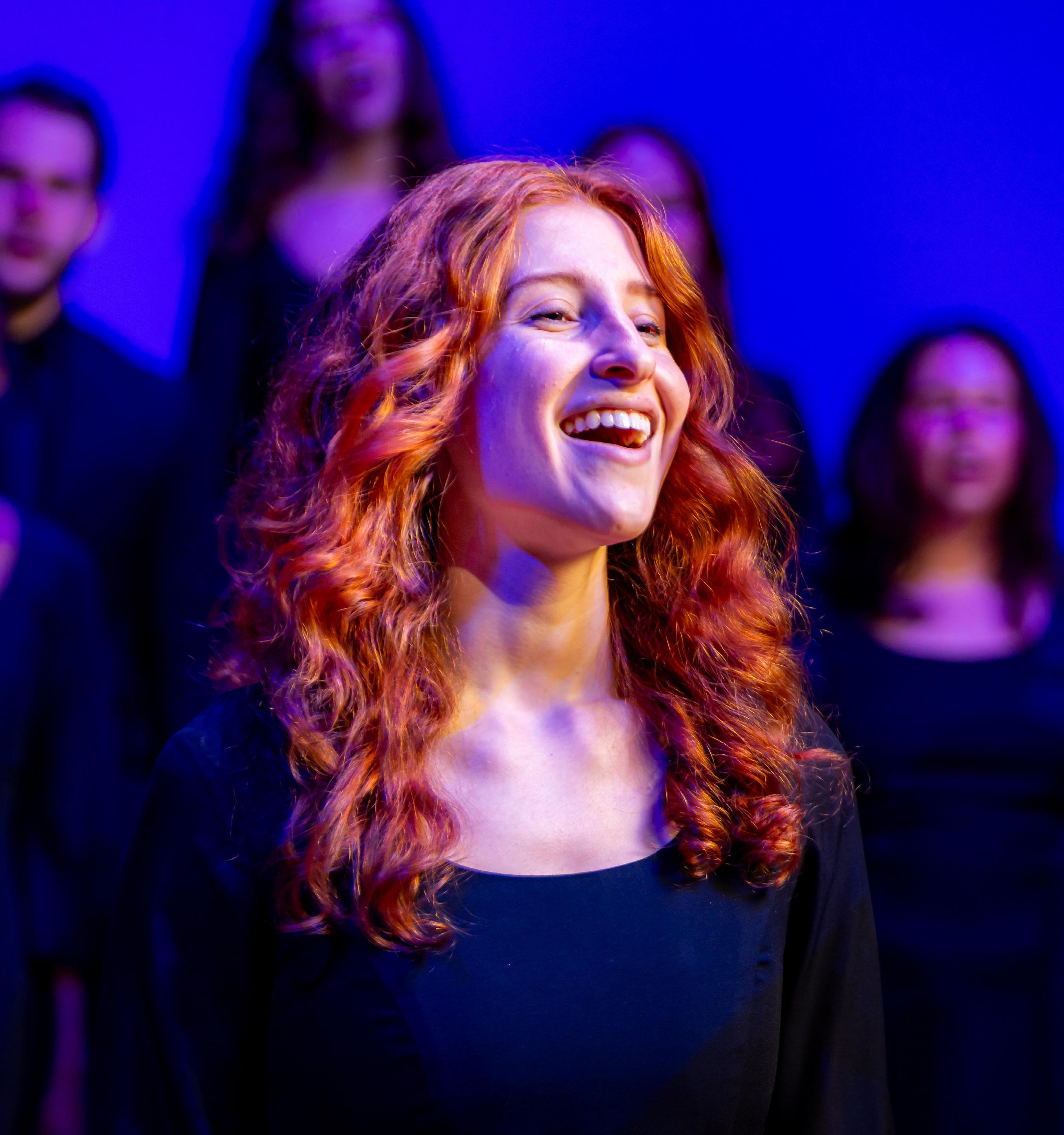
APPLY and AUDITION

This Issue

Orchestrating Success:
The Role of Mentorship for Early Career Teachers
Dr. Alyssa Grey

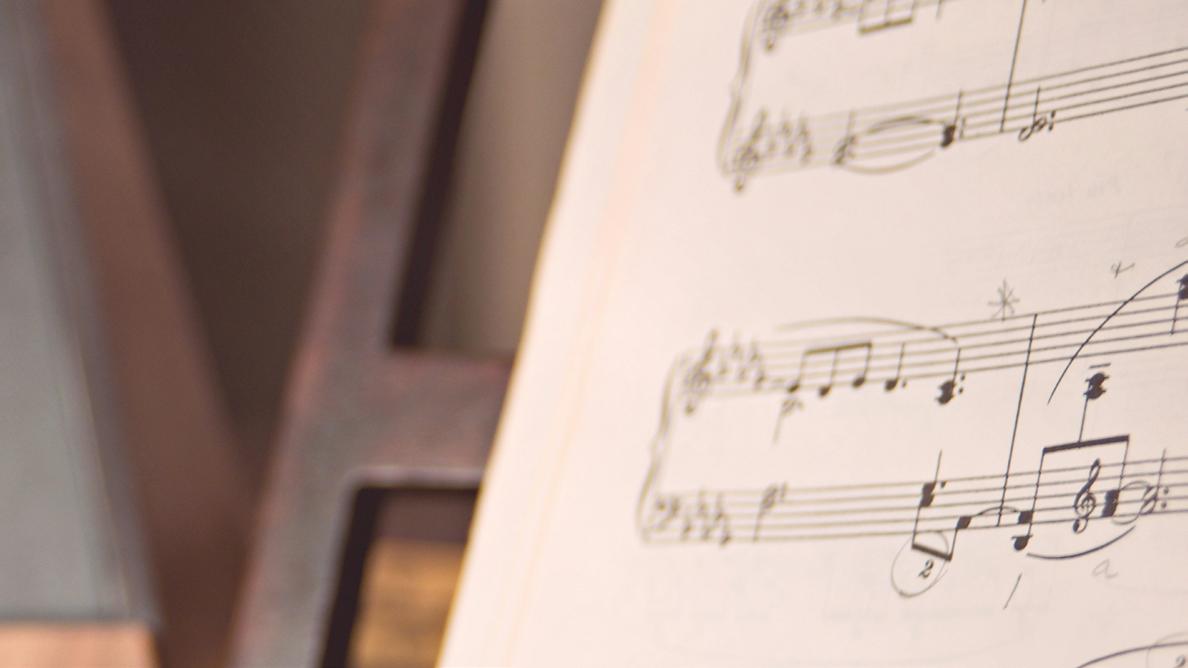
President Andy Esserwein
Immediate Past President
Neil Ruby
Vice-President for Performance Evaluation Events
Kevin Brown
Vice-President for All-State Events
Marla Baldwin
Past Presidents’ Council Representative
Dr. Richard Bell
Executive Director
D. Alan Fowler
Band Division Chair
Sean McBride
Choral Division Chair
Velma Jenkins
College Division Chair
Dr. Charles Jackson
Elementary Division Chair
Erika Brown
Orchestra Division Chair
Kevin Anderson
Association News
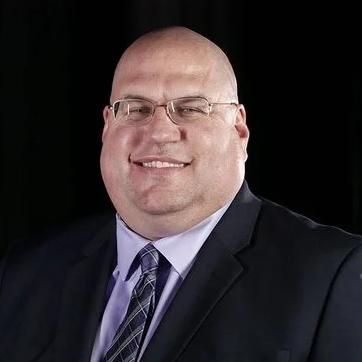
The President Speaks Andy Esserwein
Hello Georgia Music Educators,
As I reflect on the first two months serving as your president, my excitement and gratitude have only continued to grow. Serving this incredible organization, which represents the most dedicated and talented music educators in the state, is truly one of the greatest honors of my professional life. This initial period has been a wonderful opportunity to connect with many of you, and it fills me with optimism for the journey ahead and a deep respect for the path that has led us here.
Before we look to the journey ahead, I believe it is essential to look back with gratitude. I want to extend a sincere and profound thank you to our past leadership for their tireless dedication. In particular, I must acknowledge the exceptional service of our immediate past president, Mr. Neil Ruby. For the last two years, Neil has led GMEA with unwavering integrity, wisdom, and a genuine passion for our mission. He has navigated challenges with grace and celebrated our collective successes with enthusiasm. His leadership has been a model of excellence, and he has left an indelible mark on this association. On behalf of all our members, thank you, Neil, for serving in the highest manner possible and for leaving GMEA stronger than you found it.
My gratitude also extends to our outgoing Vice Presidents and Division Chairs, whose countless hours of work behind the scenes have ensured the continued success of our programs and events. Each of you has left a positive legacy, one that will guide us in the coming years.
Looking forward, I am eager to work alongside our entire GMEA leadership team—from our Executive Committee and state-level Division and Committee Chairs to our dedicated District leaders and event organizers—all remarkable individuals committed to advancing the future of music education in Georgia. I am also thrilled to partner with our wonderful GMEA staff, led by our Executive Director, Alan Fowler, each of whom works behind the scenes every day to support our members and ensure our organization runs smoothly. The partnership between our elected leaders and our GMEA staff is essential to our success. Together, we will work incredibly hard to keep our organization moving forward in the right direction. We will continue to champion the vital
role of music in our schools, creating transformative musical experiences for our students and providing invaluable resources for our teachers.
Beyond our leadership and staff, I am most excited to work with you—the members of GMEA. Whatever your role or stage in your career, your voice and experience are the heartbeat of this association. I am eager to listen to your stories and learn from your insights. My door is always open, and I encourage you to share your ideas as we work together to find new ways to improve our organization and better serve music students and educators across Georgia.
As I consider the journey ahead, a quote from the Japanese author Ryunosuke Satoro comes to mind: "Individually, we are one drop. Together, we are an ocean." This sentiment perfectly captures the spirit of camaraderie and collaboration that I hope will define our collective work. The strength of GMEA has never resided in a single person, but in the combined passion, expertise, and dedication of its thousands of members. We are chorus, band, and orchestra teachers, elementary music specialists, collegiate professors and students, fine arts supervisors, performers, music technology experts, retired music teachers, private lesson instructors, and everything in between. We represent every corner of this state and a vast spectrum of musical disciplines. Separately, we create beautiful music in our own communities. But together, we are a powerful group that can advocate for our students, support one another through challenges, and elevate the standard of music education for all.
Being "stronger together" means reaching out to a colleague who is having a tough week. It means sharing a lesson plan that sparked excitement in your classroom. It means mentoring a new teacher and helping them find their footing. It means volunteering for a GMEA event and lending your talents to the greater good. It means celebrating each other’s successes and offering a helping hand when it’s needed most. Our collective wisdom and shared experience are our most valuable assets, and by drawing upon them, we can continue to build a more vibrant and supportive professional community.
Thank you for your commitment to your students and for everything you do to fill our state with music. Let’s make it a great year, together.
With Respect and Admiration.
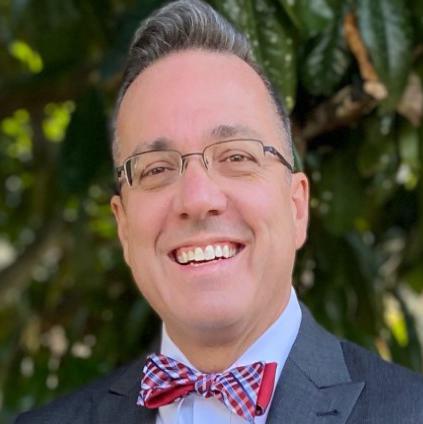
From The Executive Director D. Alan Fowler
The Greatest Crescendo…
There are moments you never forget. We all have them. Their significance may vary, but some stay with us for a lifetime. One of mine happened back in 1998 — though it feels like a lifetime ago.
That year, I was serving as one of the organizers for the GMEA High School All-State Bands. Specifically, I coordinated one of the 11th & 12th Grade Symphonic Bands. That May, I had the privilege of hosting Col. Lowell Graham, then Commander of the United States Air Force Band, during his time in Savannah. Talk about professional development!
In those days, organizers handled everything — organizing the auditions, lining up the judges, compiling results, publishing the lists, and managing many of the event logistics, including putting together the music and folders. I learned more from volunteering in that role than I did in many of my college or graduate classes. It was a masterclass in leadership, collaboration, and service — all because I said “yes” to being involved.
At the time, I was still a young teacher, eager to contribute to GMEA. My memories of All-State as a student were fresh — including my yearly backstage conversations with James Thompson, Sr., the longtime stage manager. As I carried my tuba to the back row of the Johnny Mercer Theater stage, he always had a word or two for me. Those interactions planted a lesson early: the people behind the scenes make all the difference. Their quiet efforts ensure our events succeed. I did not know then I would one day work for GMEA, but I did know I would volunteer whenever possible.
That spirit of service shaped my early career. In my first year teaching in Stephens County, when Mary Wilson needed someone to type the District Honor Band program, I raised my hand. Later, after returning from Indiana to teach in Conyers, I again looked for ways to contribute. That’s how I ended up at the Savannah airport, picking up Col. Graham. On the ride back to town, he gave me an impromptu lesson on sound, balance, and blend — insights so good I wished every music educator could have been in the car. Those lessons continued throughout the weekend. No certificate was awarded, but what
I gained was more valuable than any official “credit.”
And then came the crescendo.
It was during the Friday afternoon rehearsal. The band was working on Ira Hearshen’s Symphony on Themes of Sousa, Mvt. II: After The Thunderer. Near the end, a brass crescendo builds from piano to fortissimo — a simple marking on the page, but one Col. Graham and the young people assembled transformed into something unforgettable. I had stepped out for a moment and returned just as he told the trombones: “Start at piano, then expand so fully that the sound goes through the wall on the far side of the theater.”
Now, we all know the risk of telling trombones to let loose. I remember thinking, “I hope he knows what he just unleashed.” What followed was breathtaking. The brass swelled with such intensity and richness that I got chills — and I still do, more than 25 years later, whenever I recall it.
The concert performance the next day was spectacular. But it’s that Friday rehearsal moment that lives on for me. And here is my point: year after year, all across Georgia and the nation, students come together — from diverse schools, backgrounds, and communities — and create beauty with clinicians they have just met and with whom they only spend a short time. That, to me, is the true crescendo.
Whether it’s a district honor choir, an all-state jazz band, or a regional orchestra, the result is the same: astounding artistry that reminds us music is a unifying force. Music brings people together. But you already know that — otherwise you wouldn’t be reading this column.
Every time I answer an email, respond to a text, or sit down to work, I’m reminded how fortunate we are in Georgia to have the Georgia Music Educators Association — an organization in the corner of teachers, students, families, and communities. My hope is that we will continue to deliver on our mission and make a lasting difference in the lives of children.
Thank you for what you do, and please know that GMEA — and your dedicated, hardworking staff — are here for you.
Association News
GEORGIA MUSIC EDUCATORS ASSOCIATION
BOARD MEETING MINUTES
Marriott Courtyard Hotel - McDonough, GA
May 17, 2025
1. The meeting was called to order by President Neil Ruby at 10:00 AM.
2. The following members were present: Neil Ruby, President, Sara Grimes, Vice President for Performance Evaluations, Jay Davis, Vice President for All-State Events, Andy Esserwein, President-Elect, Dr. Richard Bell, Past Presidents’ Council Representative, Alan Fowler, Executive Director, Chris Shumick, Band Division Chair, Michelle Austin, Choral Division Chair, Dr. Josh Byrd, College Division Chair, Letricia Henson, Elementary Division Chair, Krissi Davis, Orchestra Division Chair, Hank Carter, District One Chair, Dominique Lane, District Two Chair, Brian Walker, District Three Chair, Monica Fogg, District Four Chair, Vanessa Edwards, District Five Chair, Quinn Kearse, District Six Chair, Michael Elzey, District Seven Chair, Zach Williams, District Eight Chair, Nicholas Gattis, District Nine Chair, Tayler Norwood, District Ten Chair, Leah Williams, District Eleven Chai, John Palmer, District Twelve Chair, David Metrio, District Thirteen Chair, Lisa Bassett, District Fourteen Vice Chair, Maria Menendez, Multi-Cultural Awareness Chair, Adam Brooks, Member-at-Large, Barry Morgan, Member-atLarge, Dr. David Lewis, Georgia School Superintendents Association.
3. A quorum having been established, President Ruby reviewed the voting procedure before introducing guests present for the meeting.
4. The following guests were present: Sean McBride, Band Division Chair-elect, Velma Page Jenkins, Choral Division Chair-elect, Dr. Chuck Jackson, College Division Chairelect, Erika Brown, Elementary Division Chair-elect, Kevin Anderson, Orchestra Division Chair-elect, Catherine Keyser, District Fine Arts Coordinators, Caryn Volk, Guitar Chairperson, and GMEA staff members: Laura Webb, Bernadette Scruggs, and Aleta Womack.
5. President Ruby made a special announcement on behalf of the Executive Committee. He shared news regarding the SBA Pandemic Relief Loan that was taken out in the fall of 2020. Thanks to the hard work of many, the balance of that loan has been paid off, our operational reserves have been restored to a healthy level, and GMEA is completely debt free.
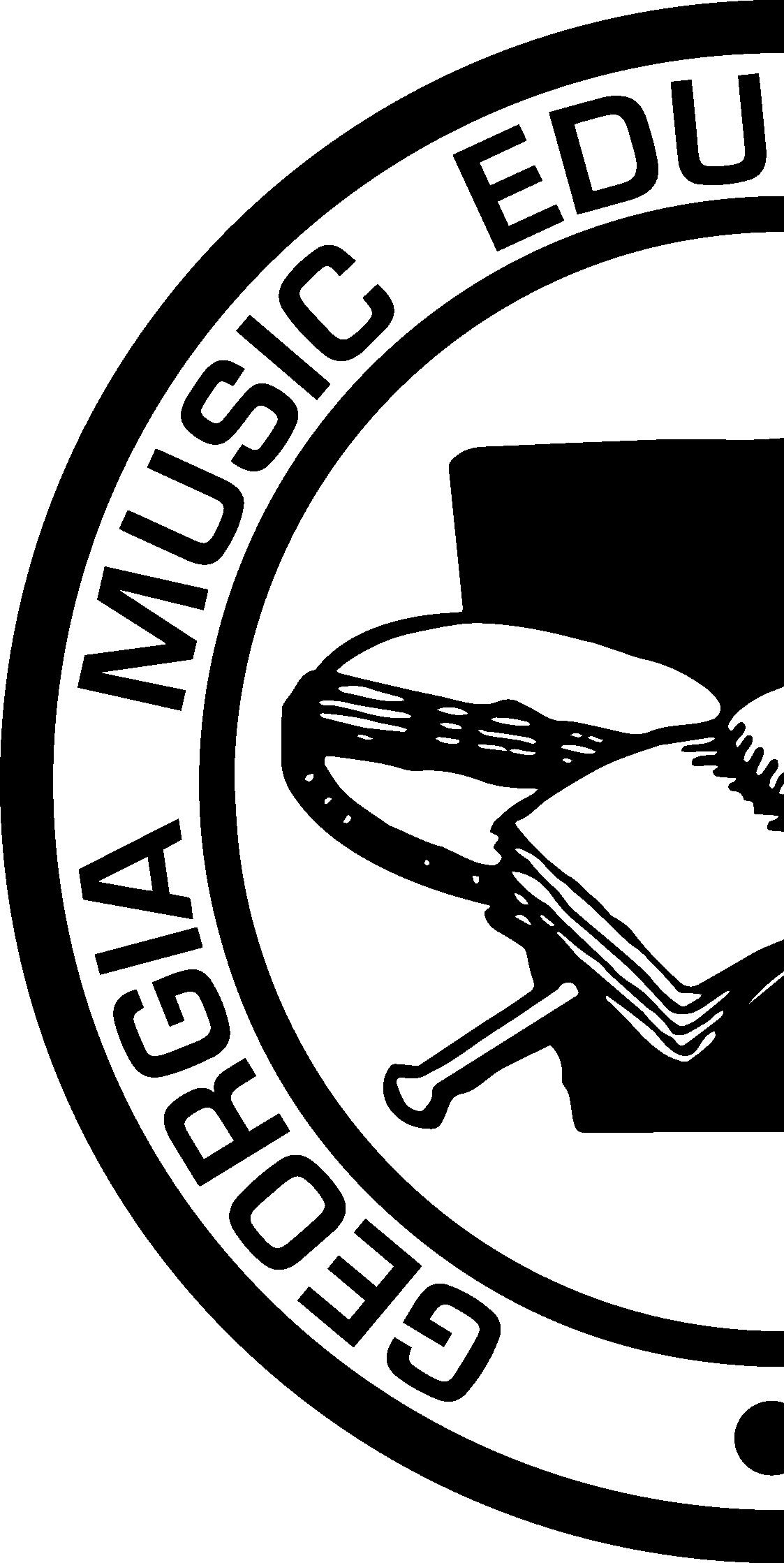
6. ACTION ITEMS - New handbook wording in blue
The following proposals were brought by Chris Shumick on behalf of the Band Division.
Replace current Marching Band General Information section of the handbook with the information below:
CLASSIFICATION, ADJUDICATION, & SCORING REQUIREMENTS FOR GMEA SANCTIONED MARCHING BAND EVENTS
A sanctioned marching band event is defined as one that is listed on the GMEA website, utilizes the GMEA scoring sheets, GMEA Scoring Formula and has gained approval by submitting an application to the Marching Band Standing Committee. All non-sanctioned events are prohibited from using GMEA scores sheets, or using the phrases “GMEA” or “Georgia Music Educators Association” on any documents or advertising related to the Marching Band event.
• The GMEA size classifications are based on the number of WIND players. Bands may enter any higher class but not a lower one. The breakdown for classification is as follows:
•A = 1-24
•AA = 25-49
•AAA = 50-74
•AAAA = 75-100
•AAAAA = 101+
•Division Classifications shall be A, AA and AAA for the smaller band division (often called "Silver"), and AAAA and OPEN for the larger band division (often called "Gold").
• A “Caption: event is defined as the following:
• 2 Music Performance Judges (40%)
• 1 Music Effect Judge (20%)
• 1 Visual Performance Judges (20%)
• 1 Visual Effect Judge (20%)
• 1 Judge per adjudicated specialty unit. Show hosts must provide a percussion, colorguard/auxiliary, and drum major adjudicator. The use of additional adjudicators for danceline and majorette/twirlers is left up to the discretion of the show host.
• An “Olympic” event is defined as the following:
• 5 Band Judges where low and high scores are dropped for each band, and the band's overall
score Is derived from averaging the middle three.
• 1 Judge per adjudicated specialty unit, whose scores will not be averaged into the overall band score. Show hosts must provide a percussion, colorguard/auxiliary, and drum major adjudicator. The use of additional adjudicators for danceline and majorette/twirlers is left up to the discretion of the show host.
• A “Festival” event is defined as the following:
• Bands are evaluated with ratings only, no scores.
• Colorguard, Percussion, Drum Majors are evaluated with ratings only, no scores.
• The use of additional adjudicators for danceline and majorette/twirlers is left up to the discretion of the show host, but if utilized shall be evaluated with ratings only, no scores.
• A festival event can occur at Caption or Olympic event with all bands performing in “Festival” performing in a block of performances together at the start of the event.
• Scoring Breakdown for all competitive and festival events
• 85.0 – 100 Superior
• 70.0 – 84.9 Excellent
• 55.0 – 69.9 Average
• 0.00 – 54.9 Fair
• The official GMEA Adjudication forms can be found in the Band Division section of the GMEA website or by contacting the Marching Band Committee Chairperson.
RULES and REGULATIONS for GMEA Sanctioned Marching Band Events Show Hosts:
• Entry Fees for Georgia bands shall not exceed $150.00 for a performing group.
• Entry forms MUST require signature of the performing group’s principal, or digital acknowledgement if online registration is used.
• Rules regarding penalties must be stated on the application sent to directors. A copy of the schedule must be sent at least five days before the event. No bands are to be accepted after the schedule is sent unless such band was entered on the same date in another approved event, which was canceled.
• If admission is charged, at least one chaperone or bus driver shall be admitted free for every ten participating students. CURRENT NAfME and GHSA membership cards must be honored at ALL GMEA approved events in Georgia. The cardholder and one guest will receive free admission.
• If an event cancels, the event coordinator must contact the Marching Band Chairperson and the GMEA office immediately
lit football fields with adequate restrooms, dressing facilities, seating, and parking for the size of the event.
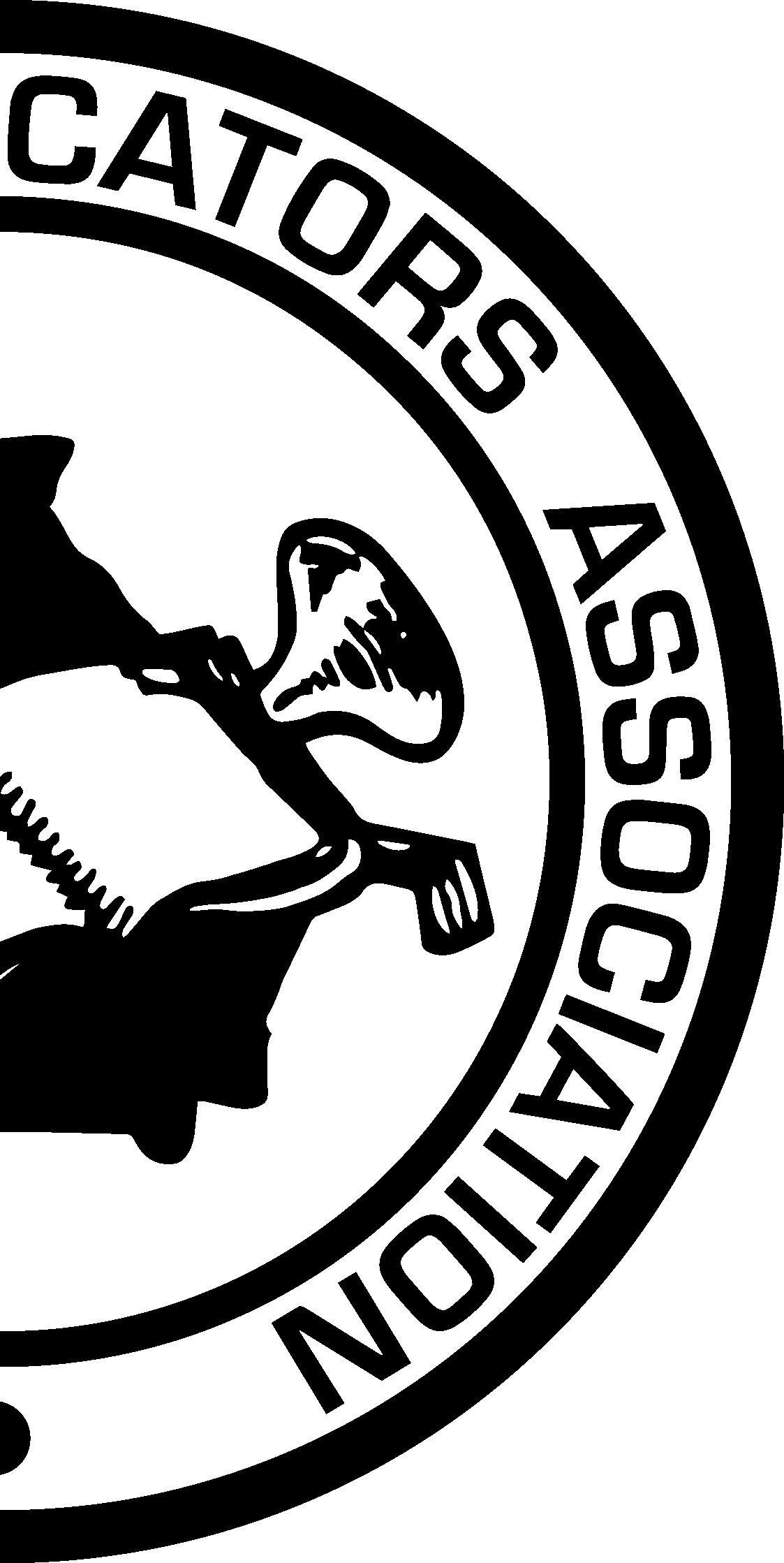
• All events must submit recap sheets from their event along with information regarding the sizes of attending bands to the current GMEA Marching Band Committee Chairperson within one week of the event.
• The Georgia Music Educators Association strongly encourages all marching contest and competition directors to address weather contingency plans in their official contest rule book and also in the communication with directors of participating schools ahead of the event they are hosting. Furthermore, GMEA strongly encourages that any event moved indoors due to weather or field concerns should not be numerically evaluated, and instead be treated as a "comments only" performance for participating ensembles.
• It is highly recommended that all GMEA sanctioned Marching Band events utilize Competition Suite, Marching Maestro (or similar) software for adjudicator commentary, tabulation and recap release.
The motion was adopted by a vote of 27-0.
• Handbook change pertaining to 1st Round All-State minimum passing scores for the following instruments from 70-75: Bassoon, Bass Clarinet, Contra Clarinet, Horn, Trombone, Bass Trombone, Euphonium, and Tuba.
The motion was adopted by a vote of 27-0.
• Update the GMEA Handbook All-State audition requirements in handbook: (New information is in blue.)
Required major scales and arpeggios for each level (middle school, concert band, and symphonic band) can be found on the GMEA website in PDF format. Scales must be played exactly as they appear on the GMEA website, within the time limit requirements printed on the published scale sheets. Major scales and arpeggios will be evaluated for articulation and pitch accuracy. Scales, including the chromatic scale, do not need to be memorized and students will be provided a clean, un-marked copy of the scale sheet to use during the audition by the monitors/judges at the first-round auditions.
The motion was adopted by a vote of 26-1.
• Proposal to add two string bass players (total of 8) to the all-state high school band instrumentation listed in the GMEA handbook instrumentation page and add the information below:
• ALL GEORGIA events must require a $500 performance bond from each Georgia entry. The sponsoring organization may require a performance bond of ANY participating group. Performance bonds must be refunded promptly.
• It is the responsibility of the event organizer to ensure the proper judging staff for the event.
• Marching events are to be held on regulation, properly
Students auditioning for all-state bass must be enrolled in a band or orchestra class if one is offered at their school. Bass students auditioning for all-state will audition through the orchestra division whether they are enrolled in band or orchestra. The string bass seating formula used by the orchestra division will determine which players get the string bass spot in the high school
band ensembles. Band Directors who send bass players but do not teach orchestra will not be required to serve as a judge at All-State Orchestra auditions.
The motion was adopted by a vote of 27-0.
• Proposed Handbook changes replacing current All-State Jazz Audition requirements with the requirements below:
Jazz All State Round 1 - Winds and Piano
• Scales: All scales may be swung or straight at a minimum tempo of MM 120. Jazz scales must be memorized.
• Bb, Eb, F Minor Blues Scale
• F, C Mixolydian Scale
• Bb Major Pentatonic Scale
• Chromatic Scale
• Etude #1 which will be a ballad performed as written.
• Sight Reading
Jazz All State Round 1 - Guitar, Bass, and Vibes
• Scales: All scales may be swung or straight at a minimum tempo of MM 120
• Bb, Eb, F Minor Blues Scale
• F, C Mixolydian Scale
• Bb Major Pentatonic Scale
• Chromatic Scale
• Etude #1 which will be a ballad performed as written.
• Sight Reading
Jazz All State Round 1 - Drums
• Grooves (16 measures of each):
• Medium Swing w/Sticks (QN=112)
• Medium Swing w/Brushes (QN-112)
• Shuffle (QN-108-112)
• Samba (HN=108)
• Bossa Nova (QN-132)
• Ballad w/ Brushes (QN=80)
• Up-Tempo Swing w/Sticks (HN=112)
• Up-Tempo Swing w/Brushes (HN=112)
• Sight Reading
Jazz All State Round 2 - Winds
• Etude #1: Ballad (from round 1)
• Etude #2: Swing etude requiring musician to play the head and then improvise for one chorus
• Sight Reading
• Lead Trumpet/Trombone Audition (optional): additional 12 - 16 bar material for those wishing to be considered for lead roles in the ASJE.
Jazz All State Round 2 - Piano, Guitar, and Vibes
• Etude #1: Ballad
• Etude #2: Swing etude requiring the student to comp under the head. The second time through, improvise a solo over the changes.
• Sightreading
• Short Latin excerpt providing slash notation that requires student to comp and then solo
Jazz All State Round 2 - Bass
• Etude #1: Ballad
• Etude #2: Swing
• Provide a walking bass line from slash notation
• Sight Reading

Jazz All State Round 2 - Drums
• Grooves (16 measures of each):
Medium Swing w/Sticks (QN=112)
Medium Swing w/Brushes (QN-112)
Shuffle (QN-108-112)
Samba (HN=108)
Bossa Nova (QN-132)
Ballad w/ Brushes (QN=80)
Up-Tempo Swing w/Sticks (HN=112)
Up-Tempo Swing w/Brushes (HN=112)
• Etude: Students will be provided a recording of a live group performing a jazz standard without drums to demonstrate ability to do band set-ups and fills in the context of a live performance.
• Sight Reading
• Short Latin excerpt providing slash notation only
The motion was adopted by a vote of 27-0.
• Proposal to add the major scale time limit to the first round of All-State Band auditions for mallet percussion utilized for brass and woodwinds in 2024.
Middle School: 1 minute, 15 seconds
Concert Band: 2 minutes, 15 seconds
Symphonic Band: 3 minutes, 30 seconds
The motion was adopted by a vote of 27-0.
• Proposal to change the wording for Mallet Percussion Chromatic Scale from “Full range of instrument” to “2 Octaves starting on C.”
Proposed Handbook Revision: Mallet Percussion: Chromatic scale, 2 octaves starting on C; major scales and arpeggios as noted below by grade level.
The motion was adopted by a vote of 27-0.
• The following proposals were brought by Michelle Austin Copeland on behalf of the Choral Division.
Proposal to update the All-State Reading Chorus section of the handbook to clarify language regarding the top SATB scorers from each district. (page 31)
Current language: Participants will be selected based on one of two scenarios: (1) the student receives the highest score (above a minimum standard score) in their district for their individual voice part (soprano, alto, tenor or bass); (2) the student receives an at-large invitation based on the highest remaining scores from all auditioning students across the state.
Proposed Language: Participants will be selected based on one of two scenarios: (1) the student receives the highest score, above a minimum standard score (defined as being 7 points below the cut-off score), in their district for their individual voice part (soprano, alto, tenor or bass); (2) the student receives an at-large invitation based on the highest remaining scores from all auditioning students across the state.
The motion was adopted by a vote of 27-0.
•Proposal to update the All-State Reading Chorus section of the handbook to clarify that the top 25 students in each voice part are chosen regardless of whether they are classified as part I or II (page 31)
Added Language at the end of paragraph 3: Although OPUS registrations require a selection of I or II for the voice part, the top 25 students in each voice part (soprano, alto, tenor, bass) will be chosen, regardless of whether they registered as a I or II.
The motion was adopted by a vote of 27-0.
• Proposal to add language to the Handbook providing instructions for LGPE groups choosing to register as an M/E split.
Add to Handbook, suggested p. 51: If choosing to perform an M/E split program, know that OPUS does not list this as a registration option. Register as Class M and indicate in the OPUS “special requests” section that your group is performing M/E. Additionally, email your District’s LGPE organizer to ensure the head judge is informed and appropriate sight-reading options are provided for your ensemble.
The motion was adopted by a vote of 27-0.
• Proposal to modify existing language and to add clarifying language regarding split programming to the handbook. (page 48, bullet 3)

selection. Groups singing a split program will sight read the selection for the lower of the two classifications.
The motion was adopted by a vote of 27-0.
• Proposal to allow for voice part changes up until the Wednesday before the first All-State Chorus audition. (page 29, second paragraph)
Proposed Language: Please Note: only directors may make changes to student registration information and must do so prior to the second Wednesday Wednesday before the region audition. the absolute last opportunity to register students Voice part changes must be made through an official form, which will be shared by the region organizer
The motion was adopted by a vote of 27-0.
• Proposal to correct terms and numbers on page 24 of the Handbook.
Approximate All-State Chorus Voice Distribution
Proposed Language: Groups may enter LGPE with a split program, meaning they may must perform one piece from each of two adjacent music lists (A-B, B-C, C-D, M-D). Groups singing a split program will sight read the selection for the lower of the two classifications. may sight read in either of their registered classifications. (e.g. If an ensemble is registered B-C split for SSA voicing, the conductor can select either the B or C-level SSA sight reading.) All other music requirements remain the same as for groups entering in one classification only. Middle School choirs registering as Class A, B, C, D, or split C-D or D-M, must follow the guidelines of High School groups and perform one a cappella Approximate All-State Chorus Voice Distribution
The motion was adopted by a vote of 27-0.
● Proposal to change and clarify information regarding All-State Chorus Sight-Singing Examples (p.27 – changes in blue)
The motion was adopted by a vote of 27-0.
Add the following language to All-State Chorus Audition Components, Component 2, III. Sightreading on p. 25 of the handbook: All Sight-reading examples will be in 4/4 time, except for Example #3 in Level 11/12, which will be in 6/8 time.
3/4 and 9/8 exercises challenge clarity of scoring since measures may not be divided evenly. In the handbook (p. 26), we propose changing “Simple” to “4/4” and “Compound” to “6/8”.
• Proposal to change and clarify information regarding All-State Chorus Sight-Singing Examples (p.27 – changes in blue)
Add the following language to All-State Chorus Audition Components, Component 2, III. Sightreading on p. 25 of the handbook: All Sight-reading examples will be in 4/4 time, except for Example #3 in Level 11/12, which will be in 6/8 time.
3/4 and 9/8 exercises challenge clarity of scoring since measures may not be divided evenly. In the handbook (p. 26), we propose changing “Simple” to “4/4” and “Compound” to “6/8”.
9/10
The motion was adopted by a vote of 27-0.
The motion was adopted by a vote of 27-0.
The following proposals were brought by Dr. Krissi Davis on behalf of the Orchestra Division.
The following proposals were brought by Dr. Krissi Davis on behalf of the Orchestra Division.
● Proposal to add clarifying wording regarding required parts to be performed at Orchestra LGPE (Handbook pg. 49, bullet 2)
behalf of the Elementary Division.
• Proposal to change the Statewide Elementary Honor Chorus wardrobe requirement to all black.
Current handbook statement (P. 34): Attire will consist of solid black pants, black socks and black shoes; or solid black skirts with dark hose and black shoes with a solid white blouse or shirt (short or long sleeves). T-shirts will be available on site for sale but will not be worn for the concert.
Student attire for the Elementary Statewide Chorus performance is as follows: Ladies will wear a floorlength black dress with sleeves or jacket, OR floorlength black skirt and black blouse with sleeves or jacket, OR floor-length black pants and black blouse with sleeves or jacket. Blouses will hang below the waist of a skirt or pants by 3 inches. Also, all ladies are to wear black shoes that completely encompass the foot. Gentlemen will wear a black, long-sleeved dress shirt, black pants, black socks, and black shoes that completely encompass the foot.
Proposed change: All parts of LGPE selections must be performed unless approved by the head adjudicator. All standard string instrument parts of LGPE selections must be performed unless approved by the head adjudicator. Extra/non-essential parts (piano, percussion, harp, etc.) may be performed at the discretion of the director.
The motion was adopted by a vote of 27-0.
• Proposal to add clarifying wording regarding required parts to be performed at Orchestra LGPE (Handbook pg. 49, bullet 2)
● Proposal to remove “Intonation” and “Sight Reading” from Harp score sheet.
The motion was adopted by a vote of 27-0.
The following proposals were brought by Vice President for Performance Evaluations Sara Grimes.
The motion was adopted by a vote of 27-0, with the understanding that actually making the change within Opus will not be possible. GMEA staff will work with the Orchestra Division to develop a plan to work around the Opus challenge.
● Proposal to add an All-State Harp Coordinator.
Proposed change: All parts of LGPE selections must be performed unless approved by the head adjudicator. All standard string instrument parts of LGPE selections must be performed unless approved by the head adjudicator. Extra/non-essential parts (piano, percussion, harp, etc.) may be performed at the discretion of the director.
• Proposal to add a best practice for all organizers of district events, district auditions, LGPE, solo & ensemble events, etc.
The motion was adopted by a vote of 27-0, with the understanding that the Harp Coordinator would be added for 2025-2026 as a position, similar to Percussion Coordinator, and that funds would not be available. During the break, the Executive Committee convened to readdress the funding of the Harp Coordinator and made the decision to pay the coordinator’s expenses, split equally between the Band and Orchestra divisions.
The following proposal was brought by Letricia Henson on behalf of the Elementary Division.
The motion was adopted by a vote of 27-0.
● Proposal to change the Statewide Elementary Honor Chorus wardrobe requirement to all black.
• Proposal to remove “Intonation” and “Sight Reading” from Harp score sheet.
The motion was adopted by a vote of 27-0, with the understanding that actually making the change within Opus will not be possible. GMEA staff will work with the Orchestra Division to develop a plan to work around the Opus challenge.
• Proposal to add an All-State Harp Coordinator.
The motion was adopted by a vote of 27-0, with the understanding that the Harp Coordinator would be added for 2025-2026 as a position, similar to Percussion Coordinator, and that funds would not be available. During the break, the Executive Committee convened to readdress the funding of the Harp Coordinator and made the decision to pay the coordinator’s expenses, split equally between the Band and Orchestra divisions.
The following proposal was brought by Letricia Henson on

Organizers must follow school district policies on background checks and facility requirements for all events.
The motion was adopted by a vote of 27-0.
• Proposal to include clarifications regarding special needs (Braille, enlargement, etc) for sight reading (LGPE or All State)
Current wording: p. 10 for All state only: In cases where a student auditioning for all state in any division is visually impaired adequate provisions must be made so as to ensure that the student is able to sight reading without being unnecessarily disadvantaged. In these instances, we must be as accommodating as possible. This must be handled on a case-by-case basis. It is the responsibility of the student’s music teacher to communicate the student’s needs to the organizer, state division chair, and Vice President for All-State events at least 30 days prior to the audition date. The final decision will be made by the Vice President for All State Events. This provision applies to both first and second level auditions.
Proposal: It is the director’s responsibility to email the organizer, state division chair, and Vice President for All-State or Performance Evaluation at least 30 days in advance with specifics for accommodations need-
ed for a student. The Vice President will coordinate with the GMEA Office to make a plan for the student’s accommodations, utilizing case managers where needed (i.e. braille)

The motion was adopted by a vote of 27-0.
• Proposal to define protocols for adjudicators ethics, standards, or means to remove an adjudicator from the list.
After discussion, amendments were made to items A, B, and D of the proposal
A. Adjudicators who fail to complete policy review training every 3 years will not have their names renewed on the GMEA Adjudicators list.
B. The executive committee has the ability to conduct a formal review of documented violations of the GMEA Code of Conduct and to suspend or remove an adjudicator from the approved adjudicator list.
C. Adjudicators are expected to uphold the highest standards of professionalism at all GMEA events, and verbal and written comments should be objective and defined by the rubric.
D. Adjudication sheets for LGPE and Solo and Ensemble will be written in pencil. If there are excessive eraser marks that affect the score or feedback given, a new sheet must be completed. Organizers should provide pencils and extra clean sheets for the adjudication team.
Following amendments to clarify items A, B, and D, the motion was adopted by a vote of 27-0.
• Proposal to establish and denote consistent procedures regarding the adjudicators lists for all divisions.
a. An adjudicator and head adjudicator application will be live from March 1st through May 15th in OPUS.
b. The adjudication committee for each division should review applications between May 15th and July 15th for the upcoming school year.
c. If the division has head adjudicators to be reviewed by the Executive Committee, they need to be sent by July 15th. The Executive Committee will vote on Head Judge applications at their late July meeting each year.
The motion was adopted by a vote of 27-0.
• Proposal to add clarifying language to the LGPE Repertoire Timetables.
Current version: handbook page 44, 46, 51, 70, : The director of the ensemble will have entered their literature selections into Opus when they registered for the event, or after that up until two weeks (fourteen calendar days) prior to the event. The Head Adjudicator
should log into Opus immediately after the two-week deadline and check the selections. Any group may change its classification at any time at any time up to fourteen days prior to the first day of the performance evaluation provided the District Performance Evaluation Chair is notified.
Additionally, the chorus version on page 48 contradicts the above as well: The choral director of the ensemble will have entered their literature selections into Opus when they registered for the event or, after that, up until three weeks (twenty-one calendar days) prior to the event. Choral Head Judges will review and notify directors of any potential rule violations at least 14 calendar days prior to their LGPE performance.
a. LGPE repertoire should be entered into OPUS at least 30 days prior to the event.
b. Head adjudicators will check repertoire at the 30 day mark prior to the event.
c. Any group may change its classification/repertoire at any time at any time up to 30 days prior to the first day of the performance evaluation. If less than 30 days, permission must be given by the VP for Performance Evaluations.
The motion was adopted by a vote of 27-0.
• Proposal to require Student Teachers who conduct ensembles at LGPE to be members of CNAfME/GMEA.
Student teachers conducting at Large Group Performance Evaluation must also be current members of CNAfME/GMEA to conduct an ensemble under the direction of their cooperating teacher.
The motion was adopted by a vote of 27-0.
• Proposal to remove the responsibility from head adjudicators to provide a stapler for their respective LGPE events and to reassign that responsibility to the organizer.
Current Version: Handbook p.45 The head adjudicator is responsible for providing the stapler and the envelopes are to be provided by the event organizer and paid for by GMEA.
New wording: Organizers are to provide self-seal envelopes or traditional envelopes with a stapler. This expense can be included in the supply reimbursement amount given to organizers.
The motion was adopted by a vote of 27-0.
• Proposal to revise score protocols for LGPE. The current wording on p. 54 of the Handbook needs replacing.
Physical Scores: Physical scores should be purchased with enough copies for the entire adjudication team.
E-print: Printed scores must be printed front/back,
collated and then stapled or bound—no loose leaf scores. For all groups utilizing online printing services to provide scores, directors must provide and attach proof of purchase verifying the school, booster organization, or director purchased the appropriate number of scores.
IMSLP/Public Domain: If a piece being performed is available in IMSLP or other public domain sources, but is on the GMEA LGPE music list, scores should be purchased through the appropriate publisher notated on the list and not printed. However, if the piece is not on the LGPE list, then scores can be printed from IMSLP or public domain sources. IMSLP downloads must meet US public domain guidelines. Please notate on the score that it is public domain. The edition must match the performers’ version.
Photocopies of Scores: Photocopied scores may be used ONLY if a letter from the publisher or vendor is attached stating that the music is on order or is presently out of print. The number of copies purchased should be stated in the letter presented at LGPE. This letter must be dated at least 14 days prior to the first day of the event in question. Photocopies must be copied front/back, collated, and then stapled or bound. Consequence: Any music score violations will result in the overall rating lowered by 1 rating. If it is a copyright violation, there will also be a letter from the GMEA Ethics and Professional Standards Chair concerning the abuse to the director’s principal.
The motion was adopted by a vote of 26-0.
• Proposal to formally allow directors to register students for solo & ensemble events not in their district, which is current practice and needs to be denoted in the Handbook.
Solo & Ensemble and jazz event entry should be in the GMEA district of which your county is a part. Application for exception to this rule MUST be made in writing and submitted to the Vice President for Performance Evaluations. When contacting the Vice President, please include a copy of your approval email from the organizer of the event you are requesting to attend. Requests must be submitted prior to the deadline for LGPE application in the GMEA calendar.
The motion was adopted by a vote of 26-0.
• Proposal to revise Solo & Ensemble and Jazz judging reimbursement, removing the requirement that adjudicators from outside Georgia be reimbursed from District funds.
Current Version: Handbook p. 64 Adjudicators from outside the state requiring transportation will be reimbursed from local GMEA district funds, not from the state level.
Proposed wording: Mileage cap of 200 miles
roundtrip for reimbursements.
The motion was adopted by a vote of 26-0.
• Proposal to remove the following outdated line from the handbook: A maximum of $100 is allowed for postage and phone expenses (total) with receipts.

The motion was adopted by a vote of 26-0.
Vice President Grimes then shared five action items for future officers to address.
Division
Chairs
• Work with division adjudication committees to begin to create division specific training for issues such as how to handle instrumentation issues, how to handle part rewrites, how to have consistent vocabulary for judging across all districts.. Training plans should be shared with the Vice President of Performance Evaluations (Kevin Brown) as they are developed and ready for feedback at the February/March 2026 Council Meetings.
• Form a specific committee for rubric revision and digitizing. This committee should start work gathering information and feedback, and then plan to have a draft rubric ready for February-March 2026 for council meetings. The members of this committee should represent all geographical areas, levels, and ages of our GMEA membership.
• Begin discussion about protocols for those who do not show up to judge auditions.
Band Division Chair
• The Jazz Committee needs to bring clarified wording about Jazz LGPE to the 2026 Council Meeting and 2026 Board of Directors Meeting.
Vice President of Performance Evaluations
• Adjudicator Professionalism Standards to be written and brought to the 2026 Board of Directors Meeting.
President Ruby presented the following proposal on behalf of the Executive Committee.
• Proposal to add a Code of Conduct for Events and Communication in the Handbook, with Membership/Renewals, and in Clinician, Exhibitor, and contracted services contracts and agreements.
GMEA Code of Conduct for Events and Communications
The motion was adopted by a vote of 27-0.
• President Ruby then introduced Dr. Matt Koperniak, chair of the Handbook Revision Committees. Dr. Koperniak detailed the efforts undertaken by the committee to ensure the GMEA Handbook and Policies reflect current practice and presented clarifying language to better align the
handbook with practice. GMEA Handbook - Ensuring Policy Reflects Current Practice
The motion was adopted by a vote of 27-0.
7. President Ruby introduced the proposed 2025-2026 GMEA Statewide Calendar
The calendar was adopted by a vote of 27-0.
8. INFORMATION ITEMS
• President Ruby shared information regarding HB982High Demand Careers and CCRPI/GADoE Fine Arts Seal. Dr. David Lewis, representative from the Georgia Association of School Superintendents, shared additional commentary.
• Executive Director Alan Fowler presented a financial report. Mr. Fowler spoke about the figures and information on the GMEA Spring Budget Financial Update, and then he directed those in attendance to the five additional reports included – The Budget vs. Actuals Report for FY’24, the All-State Balance Sheet, the LGPE Balance Sheet, the Office Expenses breakdown, and the Profit and Loss as a % of Total Income Report. He echoed President Ruby’s earlier comments about having rebuilt GMEA’s operational reserves to a healthy level loan taken out by the association in 2020.
• President Ruby shared updates from the Executive Committee regarding fee increases for the 20252026 school year.Fee updates
1.In-Service Conference Registration Fee
• Member Early Bird Registration will increase $20 to $155 and Regular Registration will increase $25 to $180.
• CNAfME Early Bird Registration will increase $15 to $20 and Regular Registration will increase $10 to $30.
• Spouse Early Bird Registration will increase $85 to $90 and Regular Registration will increase $100 to $110.
• These fee increases will help us to continue to elevate the conference experience as we work to tackle rising costs, continue the hotel parking shuttle, on-site concessions, added security, etc.
2. LGPE Fee Structure - All LGPE Registrations will increase by $25, and that increase will be used to fund:
• Adjudicator Honoraria will increase by $5 per hour.
• New Band and Orchestra Sight Reading will be purchased annually.
• A new structure will be in place to reimburse districts and adjudicators for meals.
to perform has increased. Those associated costs have previously just been absorbed.

• Additionally, costs have risen dramatically since the current structure was established and those costs have been absorbed.
• In recent years, the mileage reimbursement and the time allotted for middle school choirs
• President-Elect Andy Esserwein shared information regarding research into the current status of Opus and what next steps will be taken, as we seek to improve our online registration and communication platform.
10. Reports, either written or spoken, were presented.
11. President Ruby shared additional news on behalf of the Executive Committee before opening the floor for New Business.
• Schley County has been approved to move from District 11 to District 3.
• There is now in place a review procedure for research articles to be approved for inclusion in the Georgia Music News.
• There is also now an official GMEA Social Media Policy.
• Dr. Josh Byrd, College Division Chair, presented the case for the College Division members to be able to vote in multiple division elections. Following a brief discussion, it was explained that such a change would require a proposal to the Executive Committee, then to the Board, and ultimately a statewide Constitutional amendment.
• Maria Menedez, Multi-Cultural Awareness Chair, presented updates from her committee and addressed initiatives they would like to implement: 1. Increased social media presences, and 2. Efforts to connect members across divisions, areas of the state, and across the range of young teachers to veterans.
12.President Ruby thanked the Board and GMEA members across the state, citing evidence of GMEA delivering on the theme: “Their future is our mission.” He then presented certificates to outgoing members of the board, and President-Elect Esserwein presented a gift to President Ruby, as an expression of thanks for his dedication and service to GMEA.
13. The meeting was adjourned at 1:47 p.m.
Respectfully submitted, D. Alan Fowler, Executive Director
Georgia Music Educators Association
Georgia Music Educators Association
Georgia Music Educators Association
Fiscal Year '25 Budget vs. Actuals: FY25 P&L and the FY '26 Approved Budget July 2024 - June 2025
For additional information about the budget, please refer to the Fall Updates, which were emailed
For additional information about the budget, please refer to the Fall Updates, which were emailed out on ...

Students at the Symphony | Grades 4-8
Experience the full orchestra in Southern Landscapes, an interactive journey through the Southeastern US in music by Copland, Gershwin, and more.
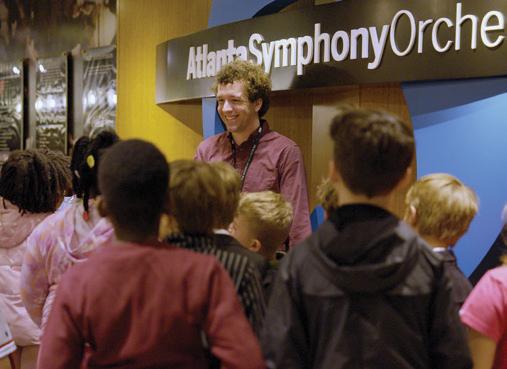
Chamber Performance + Tour | Grades 3-12
Go behind-the-scenes at Symphony Hall with a chamber performance, tour and Q&A with ASO musicians.
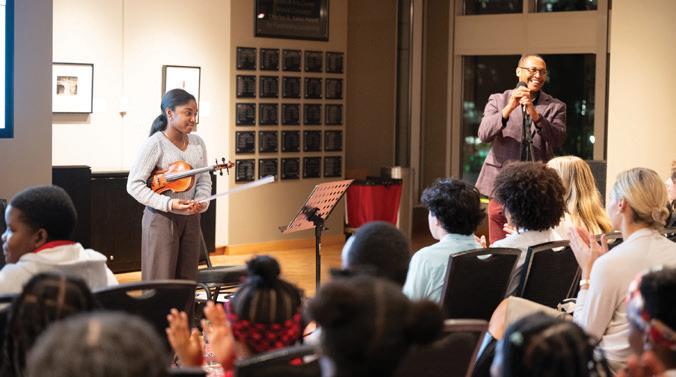
UpTempo Teen Night | Grades 6-12
Attend an ASO Concert and a preconcert session led by music professionals made exclusively for introducing teens to the music on the program.
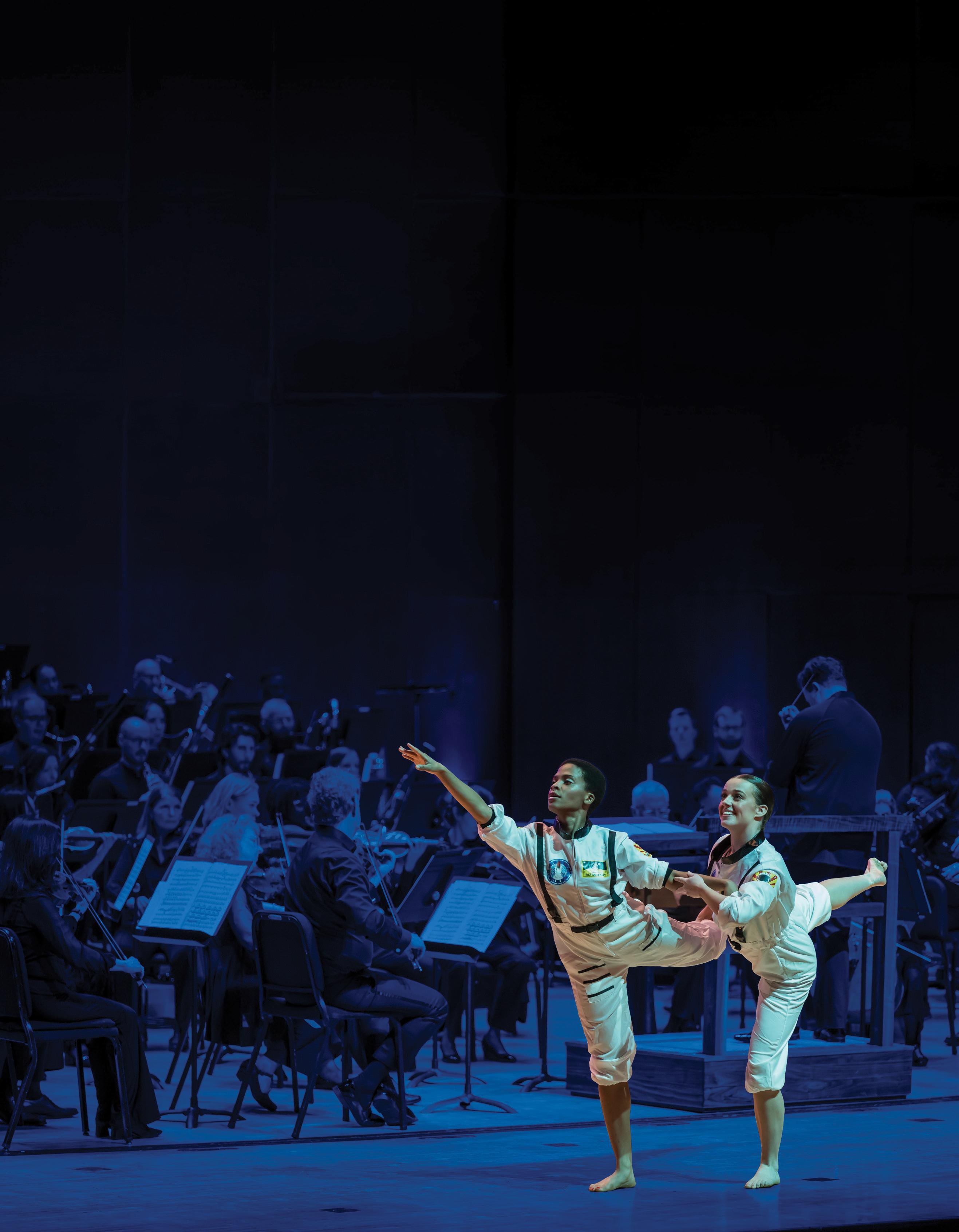
Book today at aso.org/field-trip-opportunities
Division News
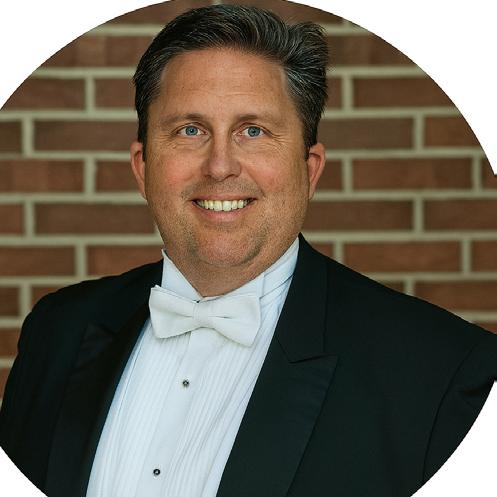
Band
Sean McBride
Welcome to another moment of beginning! With the arrival of a new school year, we step into fresh opportunities to inspire, create, and lead through music. This season of renewal invites us to welcome new students, ensembles, schools, and colleagues— and to continue shaping lives through our work.
As we begin this new year, it is important to remember that none of us carries this work alone. Teaching, directing, and “other duties as assigned” can be heavy, but the load lightens when shared with colleagues. I encourage you to build your network, lean on one another, and take care of yourself along the way. Seek out a mentor who can advise and encourage you, no matter which stage of your career, and look for ways to do the same for others. Our profession will continue to grow as we strengthen our community. I know many of us start our day before sunrise and don’t return home until after dark, but it’s essential to find time to recharge and do something that brings you rest and joy. Prioritizing your wellbeing ensures you can continue giving your best to your students and families.
Mark your calendars for the GMEA In-Service Conference in Athens on January 29-31. The ISC is a great opportunity to do some professional learning and networking with our fellow music educators. This year’s event offers many outstanding clinic sessions, exhibits, and performances from outstanding ensembles from across Georgia. Now is the time to secure leave for our ISC. I hope you will join us!
The start of school is also the perfect time to ensure that your NAfME and GMEA memberships are up to date. With registrations for All-State ensembles and Large Group Performance Evaluation underway, staying ahead of deadlines will save you stress later.
The opportunity to volunteer and serve our organization is a key part of GMEA membership. District and statewide events succeed only when members step up to serve. Make plans to adjudicate auditions, help with Solo and Ensemble and LGPE, and consider taking a role as an organizer or officer for your district. We as an organization cannot be successful without everyone pitching in!
Take time to review the newly updated GMEA Handbook, especially the many Band Division changes, and log into Opus to confirm your information is accurate. If you know of new directors in your area, reach out and make sure they know how to log into Opus, that they are receiving GMEA emails, and that they are aware of registration deadlines.
I’m also excited for our All-State event March 5-7 in Athens featuring these outstanding guest conductors:
All-State Middle School Bands
William Kilgore
Director of Bands (retired), Jackson County High School Hoschton, Georgia
John Palmer Director of Bands, Walton High School Marietta, Georgia
All-State Concert Bands
Rebekah Daniel Director of Bands
Eastern Kentucky University Richmond, Kentucky
Jeffrey Rowser Director of Bands, Woodward Academy College Park, Georgia
All-State Symphonic Bands
Patrick Burns Composer/Educator Bloomfield, New Jersey
Kristin Tjornehoj
Director of Bands (Emeritus), University of Wisconsin River Falls Hudson, Wisconsin
I look forward to the opportunity to serve you and your students. Best wishes for a great year with your students and all that you do!
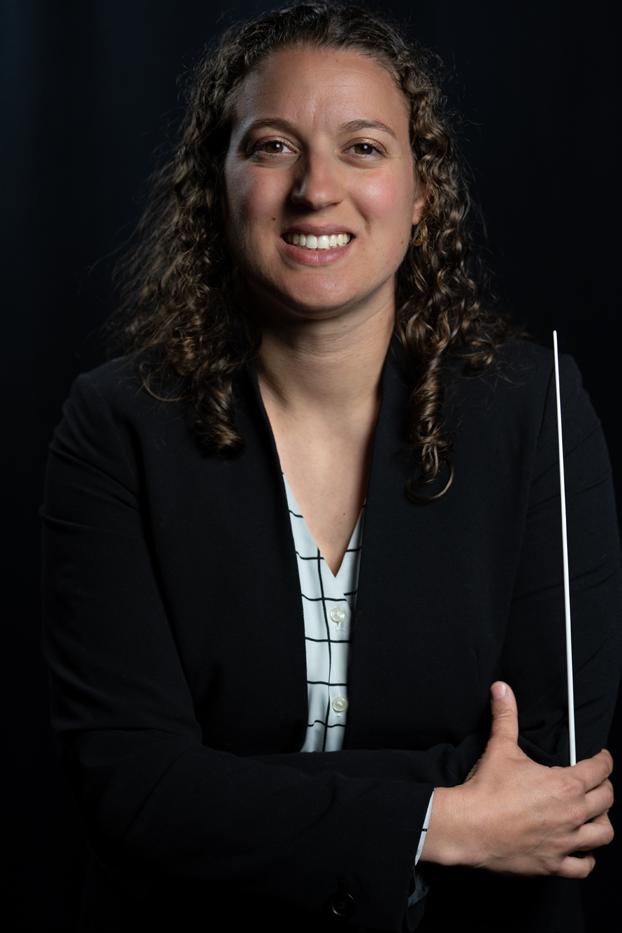
Maria Menendez
Happy Fall! I hope your school year is off to an incredible start! This year, our committee is dedicated to increasing visibility for diverse composers, students, and educators across Georgia. We aim to create more fellowship opportunities, highlight stories through social media, and share resources to support meaningful musical selections, and much more. Our state has so much to offer, and I look forward to connecting with you and celebrating your important work. Please don’t hesitate to reach out with any questions—I’m excited to hear about your achievements!
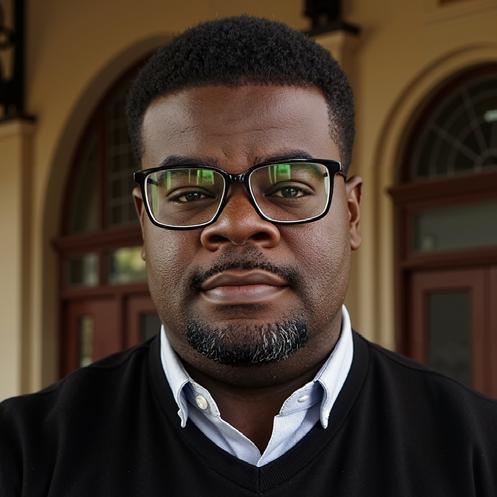
Orchestra Kevin Anderson
Greetings, GMEA Orchestra Colleagues:
I am honored to be your state orchestra division chair for the next two years. Hopefully, your school year is off to a great start! As you navigate through these beginning weeks, please ensure that fundamental student learning is the vehicle that drives your instruction. Students value their instruments more when they understand how to play them with confidence. Our role is to instill a love of music so they enjoy both learning and performing.
Looking ahead, we are excited about the annual GMEA InService Conference, January 29-31 at the Athens Classic Center in Athens, GA. This year’s fantastic lineup of concerts and sessions will pique the interests of all attendees. Congratulations to each performing group and session presenter-we look forward to celebrating your work! Please make plans to attend.
In addition, consider attending and supporting our All-State Orchestra event, also at the Athens Classic Center in Athens, GA. This year, our conductors are Dr. Tammy Yi (11/12 Full Orchestra), Andrew Gekoskie (11/12 String Orchestra), Dr. Selim Gray (9/10 Full Orchestra), Dr. Frank Diaz (9/10 String Orchestra), Joel Powell (Middle School String Orchestra #1), and David Pope (Middle School String Orchestra #2).
In closing, please review our updated GMEA handbook and familiarize yourself with the new format and updates for our division. Do not hesitate to reach out to me if you need assistance and I will do my best to help.
Thank you!
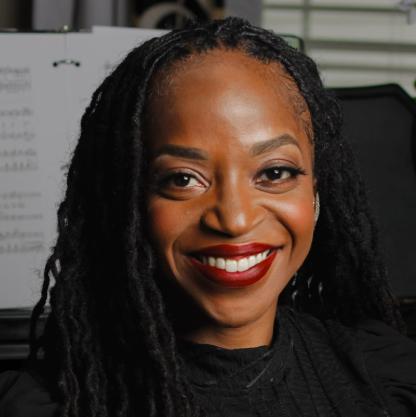
Choral
Velma Jenkins
I am humbled and honored to serve as your choral division chair. Though I began my musical journey as a flute player and earned a degree in flute performance, I have devoted my professional life to teaching high school chorus. Instrumental music shaped my early studies, but the choral world has always tugged at my heart, and I’m grateful every day for the privilege of making music with my students.
Across our state, circumstances are as varied as our schools, but one thing we all share is the magic that happens in our class-
rooms. This year, one shift that has already made a big difference for me has been focusing less on what I cannot control and more on what I can. That perspective has reminded me of the joy and power in our daily work with students.
Each day, you are shaping lives, building community, and inspiring young people in ways that last far beyond the notes on the page. If you haven’t already, I hope you’ll make plans to join us at the 2026 In-Service Conference, which features exciting sessions and outstanding performances from choirs across the state. Whether it’s been a while since your last attendance or this is your first time, I encourage you to come— and if you know a colleague who hasn’t attended for a while, I encourage you to bring them along. The conference is not only a chance for professional growth but also an opportunity to reconnect with the community of music educators that makes our state so strong.
As we move through the year, be mindful of deadlines, read the newly formatted handbook, and make note of the changes to the ASC sight-reading vocal ranges and time signatures. This year is already shaping up to be a sensational one, and I’m thrilled to share the outstanding clinicians who will lead our All-State Choirs:
6th Grade Statewide: Dr. Kellie Clark & Dr. Michelle Folta
Reading Chorus: Dr. Jacob Augsten
Middle School Treble: Ms. Tammy Carney
Middle School Tenor Bass: Dr. Amon Eady
Middle School Mixed: Dr. Stephen Gusukuma
9/10 Mixed: Dr. Marques L.A. Garrett
Senior Treble: Dr. Dominique Petite
Senior Tenor Bass: Dr. Shannon Jeffreys
11/12 Mixed: Dr. Mark Butler
I look forward to serving you over the next two years, supporting your work, advancing our division, and celebrating the extraordinary impact you have across the state.
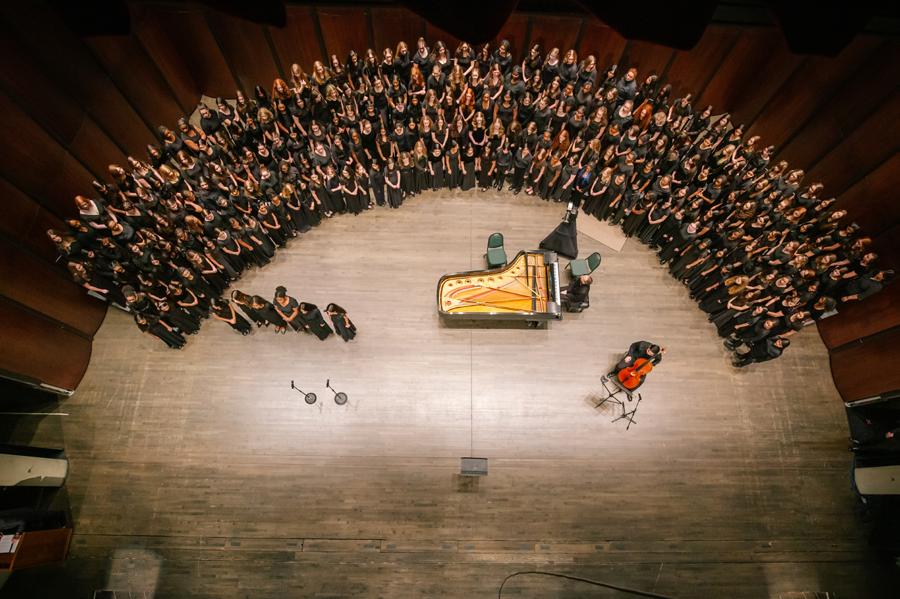
Division News
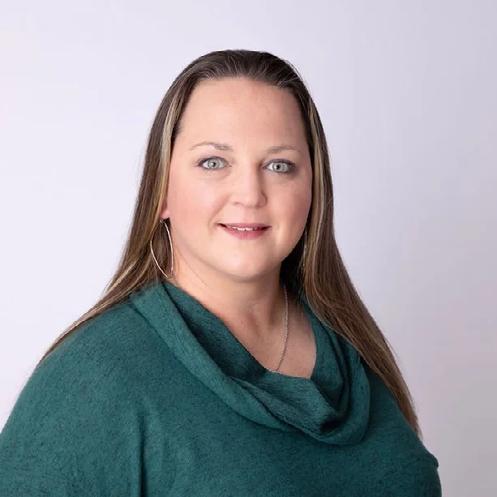
Elementary Erika Brown
Hello, fellow educators!
I hope your school year has begun with an abundance of smiles, laughter, and joyful musical moments. The start of a new year always brings a mix of emotions—excitement, anticipation, and sometimes a bit of stress—but it also offers a beautiful opportunity for renewal. It’s a time to build new relationships, strengthen existing connections, and rediscover the joy of creating, experiencing, and sharing music with our students and communities.
As I begin my term as the Elementary Division Chair, I am deeply honored to represent the passionate, dedicated, and inspiring Elementary Music Teachers of Georgia. This role is more than a title—it’s a responsibility I embrace with gratitude and enthusiasm. I am committed to being a voice for our community, advocating for your needs, celebrating your successes, and working to ensure that our collective impact continues to grow.
Planning is already underway for two of our most anticipated events: the Statewide Elementary Honor Chorus (SEHC) and the In-Service Conference (ISC). These gatherings are more than just dates on a calendar—they are opportunities to come together, share ideas, learn from one another, and reignite the spark that brought us to music education in the first place. I look forward to seeing both familiar and new faces and sharing in the energy and inspiration these events always bring.
In addition to our annual events, we’re excited to launch new initiatives aimed at supporting and expanding our Elementary Division. These projects are designed to empower educators, foster collaboration, and create meaningful opportunities for professional growth. Be on the lookout for updates and invitations to get involved—your voice and participation are essential as we shape the future of our organization together.
Thank you for the work you do every day. Your creativity, resilience, and dedication make a lasting difference in the lives of your students and in the broader music education community. I’m thrilled to walk alongside you in this journey and can’t wait to see what we’ll accomplish together.
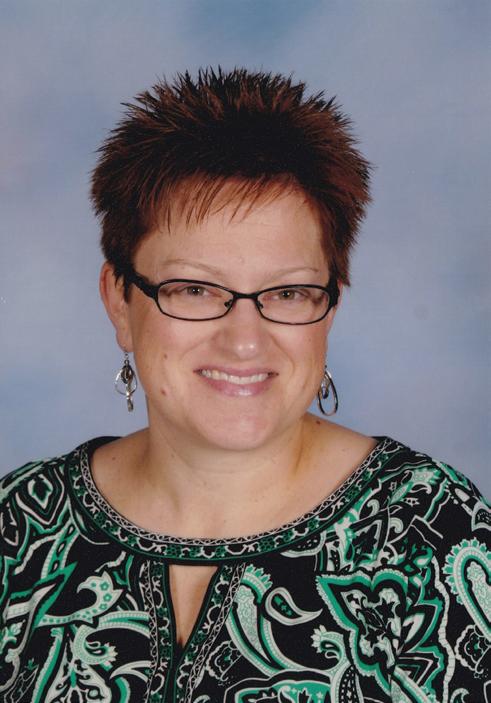
Guitar Caryn
Volk
Welcome back! I am proud to serve as your representative for the GMEA Guitar Division as I mark my 30th year as a music educator. As we move into another busy year, we are confronted with the changing tides in our students’ lives. More than ever, it is vital we provide a safe school and classroom. While we can’t fix every challenge in their lives, we can be a comfort, a calm space, and a catalyst for creativity and learning.
Safety is built on consistency, and music educators model a daily routine that naturally provides comfort and focus. Your enthusiastic greeting, friendly banter, well-constructed rehearsal routine, and high expectations show students what to do and when to do it. These habits foster growth, a sense of family, openness in creative exploration, and the effortless “flow” that makes rehearsals so meaningful.
That collaborative spirit in rehearsal carries into performance, where we must relentlessly advocate for our musicians. Confidence in your ensemble’s abilities—and ensuring they recognize their own growth—helps build pride and ownership. Share that success with your entire school and community; it deepens connections and reinforces the value of music education.
The same consistency and support are essential for our non-traditional musicians. An ensemble of guitar, modern band, mariachi, world drumming, or other non-traditional groupings can benefit from the same stringent standards and encouragement. Exploring non-traditional performance venues can further showcase and promote these ensembles in fresh and exciting ways.
Proactive support and structure help to grow successful and sustainable music programs. When we pour into our students, the energy always flows back to us—give and take! We look forward to seeing you at district meetings, performance events, and our annual conference. All the best for a fulfilling year and a toast to your musical family!
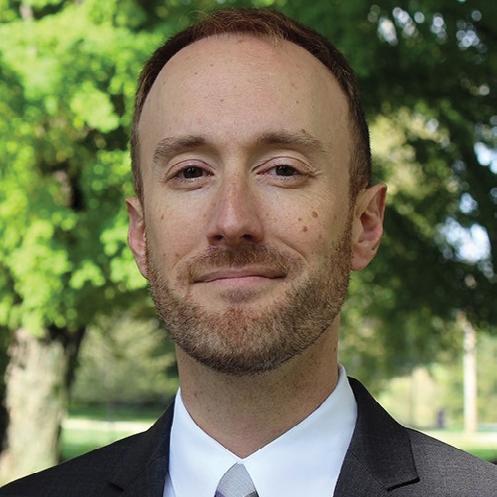
Historian Matt Koperniak
As you read this issue of the Georgia Music News, you are staying up-to-date with news and trends in music education around our state. You are also engaging with a future historical artifact! The Georgia Music News (GMN) comprises
a significant historical archive for our Association. In order to make our history more accessible, the history page on the GMEA website now includes an archive of past GMN issues, starting with the first one-page issue printed in 1938.
Max Noah was the founder and first editor of the GMN in 1938, which is the same year that GMEA adopted a new constitution and affiliated with the Music Educators National Conference (now the National Association for Music Education). At that time, Max Noah was music department chair at the Georgia State College for Women in Milledgeville (now Georgia College & State University). The GC&SU recital hall was renamed the Max Noah Recital Hall in 1987 to recognize his contributions to music education across Georgia.
Take a moment to read some early issues of the GMN. History can teach us many lessons, but it can also bring perspective to our present circumstances. As I read the earliest issues, I am reminded of a vital professional obligation: ensuring access to music education for students across Georgia. We remain focused on that goal as a unified state association, now with over 3,500 members in 2025. Best wishes for a fantastic school year making music with your students!
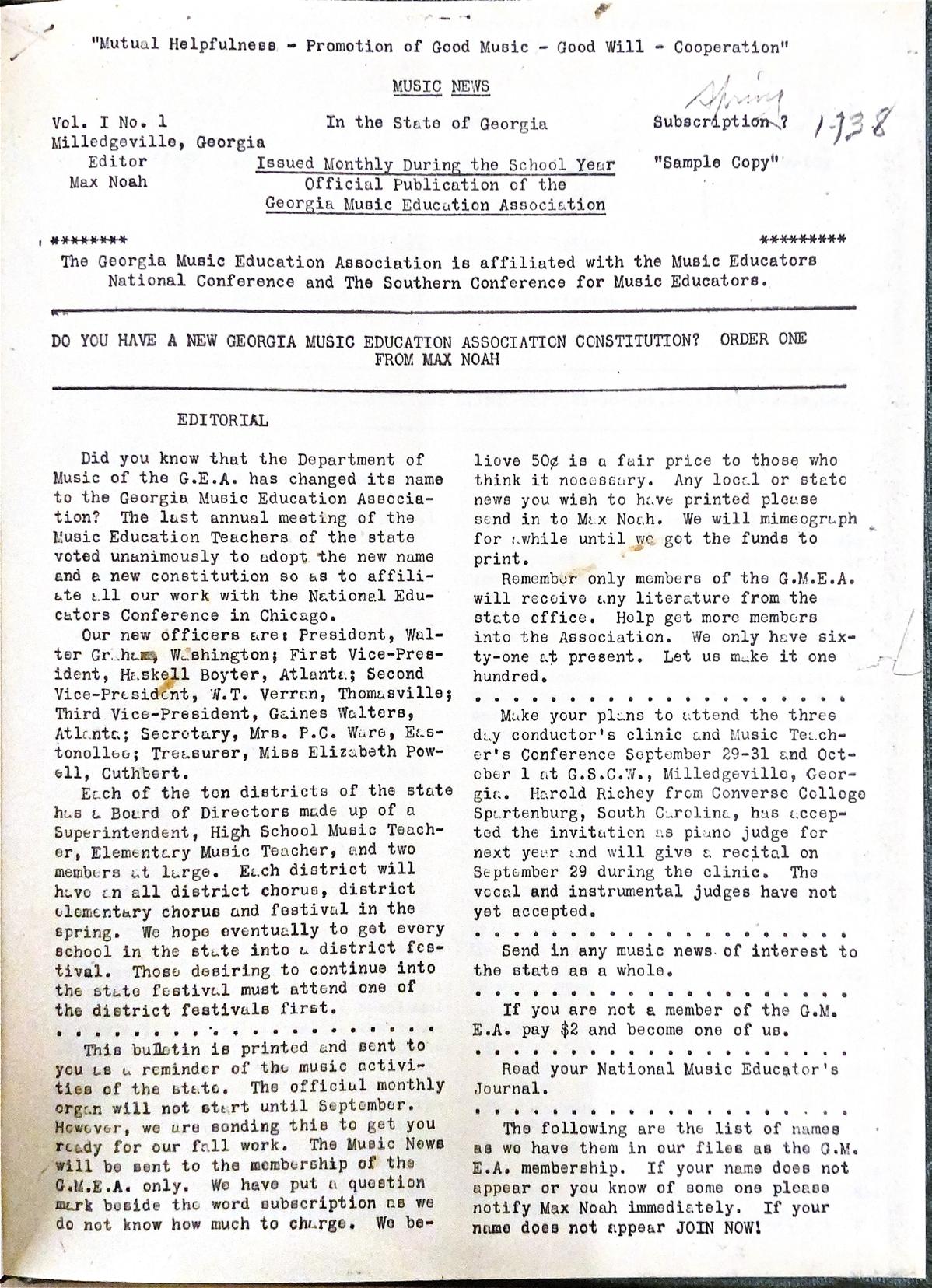
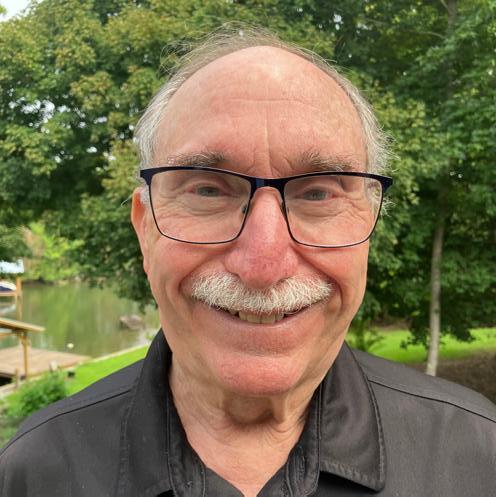
Retired Members
Jay Wucher
As a new school year begins, many, if not most of us, are enjoying the benefits of a rewarding career that is now rewarding us with less work, a steady income, and an opportunity for redirection as opposed to retiring. So now that we are there, what do we do with it?
I came across an article in the AARP magazine that can serve as a good refresher course in “What do I do Now?” Below, I am sharing my take-aways.
10 Keys to a Happy Retirement
Retirement is about more than just leaving work behind—it’s about building a fulfilling new chapter of life. Experts highlight ten common habits of the happiest retirees:
1. Save Early and Often – Prioritize saving throughout your career, aiming for financial security and manageable debt.
2. Pursue Hobbies – Engage in three or more interests you love, from travel to volunteering to creative projects.
3. Create Daily Routines – Establish consistent rhythms that bring purpose and joy.
4. Stay Close to Family – Living near adult children boosts happiness, but true joy comes when they are independent.
5. Redefine Identity – Find purpose outside of work, whether through creativity, service, or leisure.
6. Build Friendships – Maintain strong, diverse friendships beyond the workplace.
7. Try New Things – Step outside your comfort zone to stay curious and engaged.
8. Invest for Income – Ensure reliable income streams for peace of mind.
9. Prioritize Health – Stay active, eat well, and care for your body.
10. Enjoy the Middle Ground – Avoid extremes of pennypinching or overspending; savor life’s simple pleasures.
Retirement done well blends financial security, meaningful relationships, and the freedom to enjoy life with curiosity and balance.
You can peruse the entire article, entitled “10 Secrets of a Happy Retirement,” by Bruce Horovitz at https://www.aarp.org/ money/retirement/happy-retirement-secrets/ Hypertext link provided with permission from AARP.org. AARP.org does not sponsor or endorse GMEA.
Division News
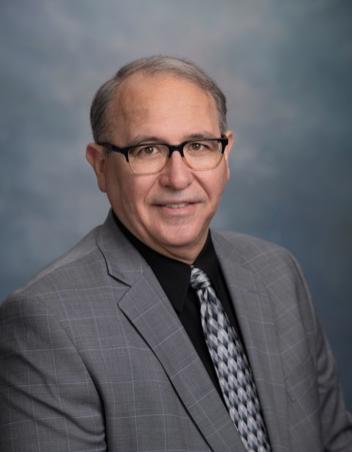
College
Dr. Charles R. Jackson
am excited to begin a new academic year filled with opportunities for growth, collaboration, and the sharing of ideas. I would like to extend my sincere gratitude to Dr. Josh Byrd of The University of West Georgia for his dedicated service as our College Division Chair over the past two years. Building upon the outstanding work of both Dr. Byrd and his predecessor, Dr. Chester Phillips of Georgia State University, my goal is to strengthen the connections between GMEA members at the collegiate level and those working in our public and private elementary, middle, and high schools.
One important step toward this goal is encouraging more of our university professors to become active members of GMEA and NAfME. Educators at every level—elementary through collegiate—have valuable insights, resources, and experiences to share. By fostering stronger bonds across all levels of our profession, we can discover innovative ways to serve music students throughout Georgia. Ultimately, our students are the greatest beneficiaries of a united and thriving GMEA.
The Chairperson of the GMEA State Music Supervisors Council, Carolyn Landreau, and I are making an effort to organize a meeting with our university music education professors and music supervisors from school districts across the state to discuss ways to connect our music education graduates with teaching positions! The meeting will take place on October 30, 2025, from 9:30 AM to 3:00 PM, at the Fairview Performing Arts Center in Henry County, 544 Fairview Rd, Stockbridge, GA 30281. Sweetwater Music is providing lunch. We would like to have representation from the music education faculty from every university/college in Georgia.
I hope to highlight the exceptional events, initiatives, and achievements taking place in our colleges and universities through features in Georgia Music News. Sharing these stories will help more educators and students across the state benefit from the opportunities we provide as the College Division. I invite members from all GMEA divisions to share how the College Division can better support the organization as a whole.
Please use THIS LINK to submit news, events, and/or to express your intent to join our meeting on October 30th.
If you serve as the faculty advisor for the CNAfME chapter at your university, please encourage your student officers and members to work closely with Dr. David Langley as he begins an initiative to meet with CNAfME representatives from every chapter.
I look forward to serving as your College Division Chair over the next two years, and I welcome your input, ideas, and collaboration.
Wishing you a productive and rewarding semester ahead.
College Division Events
Across the state, our universities are hosting a variety of educational events designed to support music students and educators in both public and private schools. Please mark your calendars and attend as your schedule allows. I also encourage our College Division members to share information about upcoming events throughout the year so that we can ensure all music educators and students have the opportunity to benefit from these valuable experiences.
Date and Time: November 6, 2025, 6:00 PM
University: Georgia State University
Event: Dr. Quincy Hilliard Residency
Location: Aderhold Learning Center, room 405, 60 Luckie Street NW, Atlanta, GA 30303
Event Description: Building Good Tone Quality for your Beginning, Middle, and High School Band. Tone is the first fundamental that should be taught to students. This session will focus on the early fundamentals for developing good tone and breathing habits for young bands. In addition, a systematic approach will be discussed for enhancing tone, intonation, technique, and balance I your middle and high school band.
For more information: Contact Dr. Chuck Jackson cjackson239@gsu.edu
Date and Time: November 7, 2025, 12:00 PM
University: Reinhardt University
Event: Middle School Honor Band Clinic
Location: Falany Performing Arts Ctr., Reinhardt Univ. campus
Event Description: Middle school clinic featuring prominent guest conductors of 2 MS honor bands & guest performing MS bands; masterclasses for each section of honor bands conducted by RU faculty/students; students must be nominated by their directors at: https://www.reinhardtcnafme.com/reinhardtmiddle-school-honor-band
For more information: Contact Dr. Kerry Bryant at kgb@reinhardt.edu
Date and Time: November 8, 2025, 1:30 PM
University: University of West Georgia
Event: Future Band Director Day
Location: University of West Georgia Humanities Building
Event Description: Explore the career of a band director and the path to becoming one. For 11th and 12th grade band members and parents.
For more information: Contact Dr. Myra Rhoden mrhoden@westga.edu
Date and Time: January 15, 2025, 3:00 PM
University: Reinhardt University
Event: High School Honor Band Clinic
Location: Falany Performing Arts Ctr., Reinhardt Univ. campus.
Event Description: High school clinic featuring prominent guest conductors of 2 HS honor bands (Mr. James Seda, Mr. David Starnes) & guest performing HS bands (Buford HS, Erik Mason and Bridget Wildes, Dirs.; Jefferson HS, Nick Golding, Dir.); concert by the RU Wind Ensemble (Dr. Kerry Bryant, conductor, Dennis Naughton, Asst. Dir.); masterclasses for each section of honor bands conducted by RU faculty; students must be nominated by their directors at: https://www.reinhardtcnafme. com/reinhardt-high-school-honor-band
For more information: Contact Dr. Kerry Bryant at kgb@reinhardt.edu

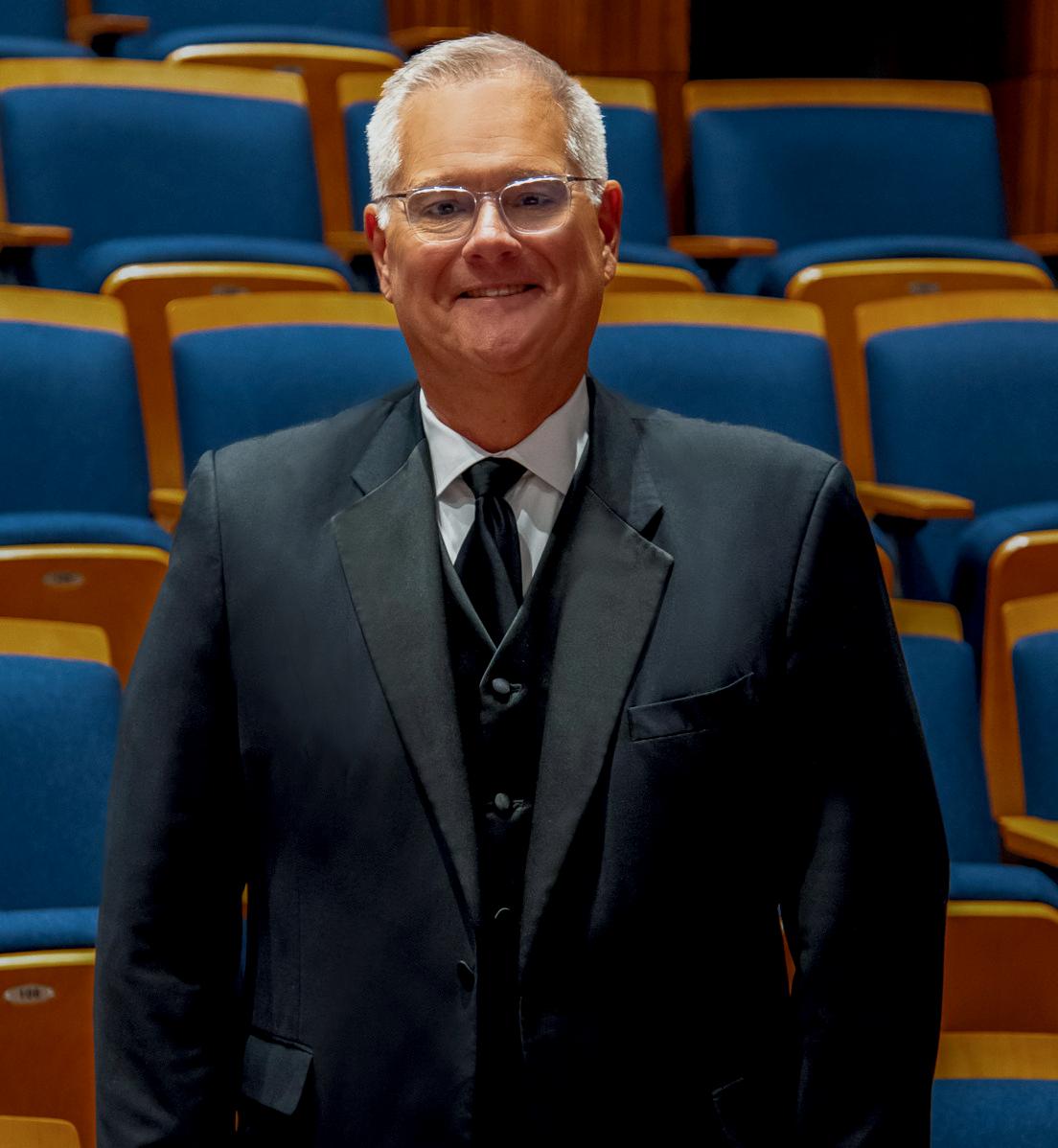
DEPARTMENT HEAD WELCOMING
Earn your M.M. in Music Education at UTC, a flexible, 31-hour program designed for working music educators that blends online coursework with summer study on campus through our Pedagogy and Conducting Institutes.

Dr. Joe Miller
Required for MM students, but open to anyone seeking professional development.
University of Cincinnati
June 1-5, 2026
Lynn Gackle
Baylor University
June 8-12, 2026 Prof. Steve Davis
University of Missouri-Kansas City
June 1-5, 2026 Dr. Rebecca Phillips
Colorado State University
June 8-12, 2026


District 1
Steven Arnold
Vidalia High School, Director of Bands
Laura Freund
Kourtney Funderburk*
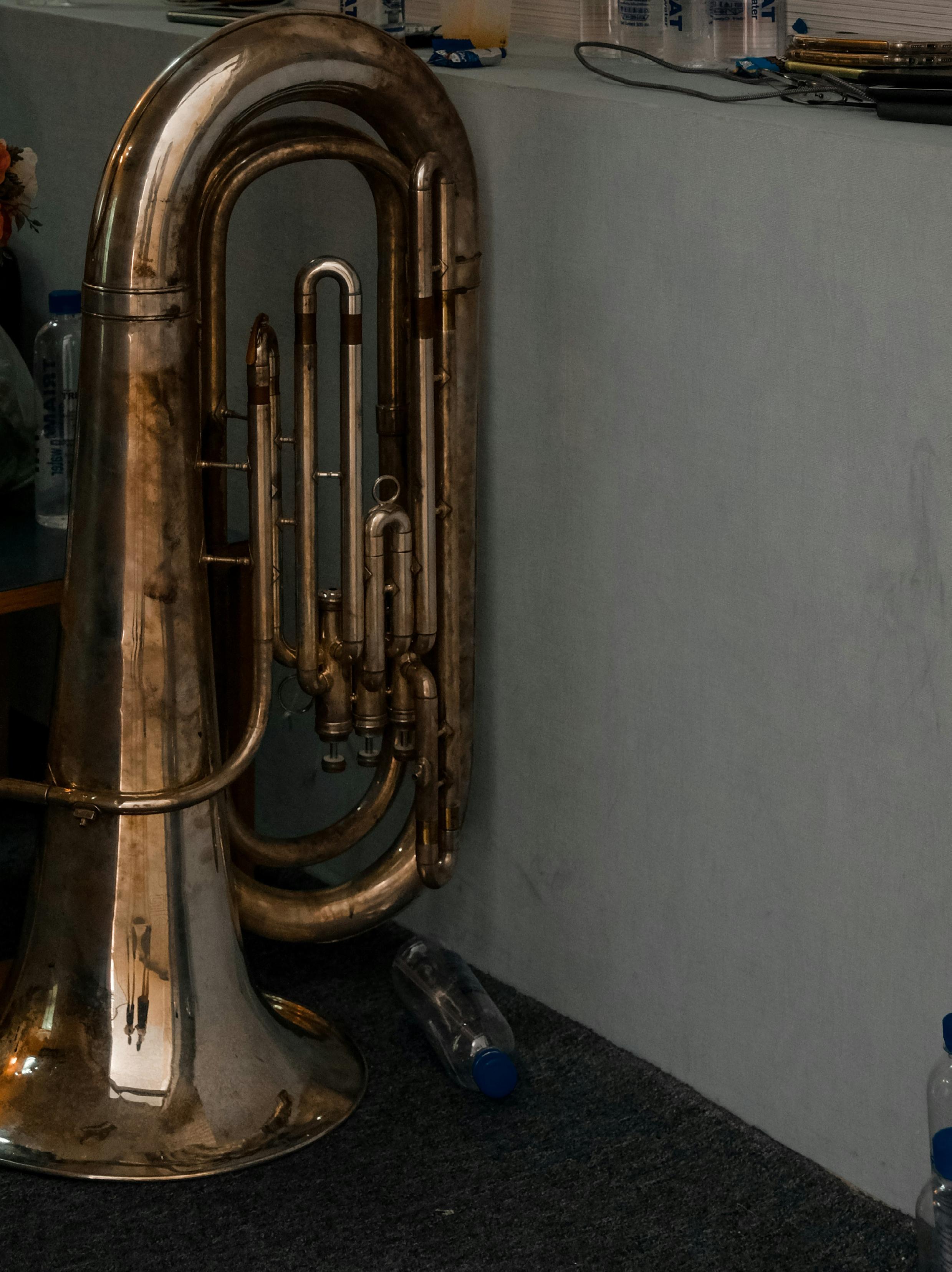
Georgia
GMEA proudly celebrates asm with students across educators as they embark
*Denotes First Year Teacher
Treutlen County Middle School and High School, Band Director
Sol C. Johnson High School, Chorus Director
Emilie Gatewood*
Woodville Tompkins High School, Band Director
Dr. Chris Harper
McIntosh County Academy, Band Director
Jimmy Hendricks*
Isle of Hope School, Band Director
Erica Kotschwar
Godley Station K-8 School, Chorus Teacher
Anthony Lacivita*
Jacob G. Smith, and Heard Elementary, Band and General Music Teacher
Logan Melvin*
Georgetown K-8 School, Instructor of General Music and Band (K-8)
Benny Ratliff
Vidalia HS and J.R. Trippe MS, Associate Director of Bands
Alex Richardson*
Myers Middle School, Band and Chorus Director
Shaun Sneed
McIntosh County Middle School, Band Director
Da'Nette Watford
Esther F. Garrison School for the Arts, Orchestra Director
District 2
Kim Humphries
Bainbridge High School, Director of Choral Music
Becca Jones
Eighth Street Middle School, Chorus Teacher
District 3
Angela Tates
Veterans Memorial Middle School, Band Director
Jason Thorne
Creekside School, Band Director
District 4
Preston Ridgell
Chamblee High School, Director of Bands
Skylar Smith*
Livingston Elementary, Music Specialist
District 6
Duncan Jourdan*
Rising Starr Middle School, Band Director
Georgia Music Educators on the Move!
celebrates our members who are stepping into new teaching roles to share their musical expertise and enthusiacross the state. We wish them every success in their new positions! We also welcome our first-year music embark on their journey to inspire and shape the future of music education in Georgia.
Teacher
District 7
Luke Bass*
Central-Carroll Middle and High School, Associate Band Director
Dorcas Bishop
Bowdon Elementary School, Music Teacher
Asha Brown
Bay Springs Middle School, Chorus and General Music Teacher
Katie Hoberg*
Sammy McClure Middle School, Band Director
Amelia Young*
Temple Middle School, Director of Bands
District 8
Franklin Carmona*
St. John the Evangelist Catholic School, Music Teacher
Braeden Floyd*
Wheeler County High School, Director of Bands
Parker Olson
McIntosh HS, East Coweta HS, Woodward Academy, Percussion Instructor
District 9
Emily Atkeison
DeSana Middle School, Director of Bands
David Cain*
Liberty Middle School, Band Paraprofessional
Grant Davis
Fannin County High School, Band Director
Justin Davis
Pickens High School, Choral Director
Melissa Grizzle
Lakeside Middle School, Chorus and Theater Director
Nate Hughes
South Forsyth High School, Director of Bands
Camden Pruitt
Cherokee High School, Choir Director
Catherine Sikes
Gilmer High School, Chorus Director
Jacob Soesbee
Denmark High School, Assistant Band Director
Brandon Waugh
South Forsyth Middle School, Assistant Director of Bands
District 10
Molly Furse*
Stallings Island Middle School, Choral Director
Max Libardi*
Washington County High School, Band Director
Sarah Ann Mallard*
Columbia Middle School, Choir Director and General Music Teacher
District 11
Nicole D. Stetzer
Johnson County Middle/High School, Band Director
District 14
Olin Aultman
Oconee County High School, Director of Bands
Anthony Baird
North Habersham Middle School, Director of Bands
Brooke Bong
Jackson County High School, Director of Bands
Isabella Cabrel-Watson*
West Hall Middle School, Director of Bands
Sam Chase
Social Circle High School, Band Director
Aziz Coleman
Clarke Central High School, Guitar Teacher
Celena Couch
South Hall Middle, 6th Grade Chorus Director
Julie Dixon
Commerce High School, Band Director
Jay Dunn
Monroe Area High School, Chorus Director
Rebecca Floyd
Athens Academy, Orchestra Director
Madisen Hewell*
East Jackson Middle School, Chorus Teacher
Corey Hopson
Elbert County Comprehensive HS, Band and Chorus Director
Breanna Jones*
World Language Academy, Band Director
Ryan Lopez*
Cedar Shoals High School, Orchestra Director
Dr. Joel Singleton
Walnut Grove High School, Athletic Director
Cole Smith
West Hall High School, Band Director
Kendall Sorrow
Rabun County Middle School, Chorus Director
Ashley Steele
Oconee County Middle School, Chorus Director
Naomi Su
Clarke Central High School, Chorus and Music Technology Teacher
Mathew Thompson*
Russell Middle School, Assistant Band Director
Orchestrating Success: The Role of Mentorship for Early Career Teachers
By Dr. Alyssa Grey Introduction
The first year of teaching music presents a unique set of challenges. Feelings of isolation and stress are common, particularly if you’re the sole music teacher at your school. Without colleagues in your field, it can be difficult to share ideas or troubleshoot classroom issues. Having a seasoned music educator as a mentor can be incredibly valuable, offering not only practical guidance but also emotional support and a sense of connection.
Music classrooms come with their own distinct complexities—ranging from varied setups to teaching multiple grade levels. Often, we’re responsible for creating our own curriculum from scratch. Unfortunately, generic district mentoring programs rarely cater to these specialized needs. Professional development can sometimes feel more like a drain on planning time than a benefit. Support designed specifically for music teachers is essential to our success.
Unique Demands of Music Classrooms
There are distinctive organizational and administrative tasks involved when teaching music. Music educators often need to manage changing room setups while teaching multiple grade levels. They must demonstrate strong organizational skills and the ability to shift teaching styles to match a wide range of student ages and abilities. The challenges can be even greater for music teachers who move between classrooms or schools. Frequent travel can make it hard to feel part of any one community. Music educators must learn to work within different school cultures with routines and expectations that can be both tiring and isolating. These demands highlight the need for targeted support tailored to music educators
Example (General Music Class): A general music teacher who moves between schools may face changing classroom layouts and shifting daily

schedules. They may need to adjust their lessons to work with different class lengths and student groups. Support from a mentor who understands these situations can be especially helpful in creating adaptable lessons and building strong time management skills. General music teachers may also consider building professional relationships with other teachers at the school who can help with transitions or classroom setups.
Recognize Feelings of Isolation
First-year and early career music teachers often face major challenges as they move from student teaching into leading their own classrooms. One challenge that is sometimes overlooked is a feeling of isolation. Many new music educators are the only person in their school teaching the subject. In smaller districts, they may have few or no colleagues across schools. The lack of colleagues and same-subject support can create feelings of loneliness and anxiety. Without fellow music teachers to turn to for advice or idea sharing, they may feel disconnected from a professional network. The absence of peer support can make teachers feel overwhelmed and may increase the risk of stress and burnout.
Example: A first-year teacher can feel less isolated by actively seeking out and engaging with professional communities, both locally and online. Joining state
or national music education associations, such as the National Association for Music Education (NAfME), can provide access to mentorship programs, forums, and regional events where they can connect with other music educators. Locally, they might reach out to nearby schools to form informal support groups or attend district-wide professional development sessions to build relationships with colleagues. Online platforms such as music educator forums offer spaces to ask questions, share resources, and find encouragement from others who understand the unique challenges of teaching music. These connections can help reduce feelings of isolation and provide a valuable network for advice, collaboration, and emotional support.
Burnout

Burnout among music educators often unfolds gradually, taking on forms that can feel deeply personal and difficult to articulate. One of the most common experiences is emotional exhaustion, the kind that builds up after weeks of juggling rehearsals, performances, lesson planning, and challenging classroom management. Over time, fatigue can lead to a sense of detachment, where teachers begin to feel disconnected from their students or lose the initial spark of joy that comes from teaching. Depersonalization can be especially tough for earlycareer music educators who may not yet have built professional relationships. Some teachers may begin to question their effectiveness, feeling as though
their hard work isn’t making a difference or being recognized by administration. These feelings tend to grow in environments where support is scarce and collaboration is limited. Intentional mentorship, peer connection, and meaningful recognition are important to help teachers feel heard and supported.
To address burnout, researchers suggest structured peer mentorship and workload rebalancing. Teachers experiencing burnout can benefit from regular collaboration with another music educator, either through district-supported mentoring or professional learning communities focused on music instruction. Additionally, advocating for a protected planning period or administrative support, such as help with logistical tasks like concert planning, can reduce daily stress. When teachers have a support network and a manageable workload, their sense of efficacy and job satisfaction improves significantly. It is essential for music teachers to have time to focus on creative planning and building connections with students.
Example (Band): Consider a middle school band director who teaches six different classes daily, organizes performances throughout the year, and manages student scheduling and equipment, all without an assistant or dedicated planning period. Over time,
the teacher begins to feel emotionally exhausted and disconnected from both students and the music itself. Lesson planning becomes a chore, motivation declines, and the teacher begins questioning their impact on students. These are well-documented signs of burnout from educational psychology literature.
Importance of Mentorship
Strong mentorship programs play a vital role in helping new teachers succeed during the early years of their careers. The transition from preservice to inservice music educator can feel especially difficult. The unique challenge of creating a curriculum from scratch often requires guidance that generic mentorship programs do not provide. Having access to a mentor who understands the realities of teaching music can help new educators build confidence managing stress, selecting literature, and writing a curriculum. Mentors can help with bus rentals, parent organizations, setting up private lessons, and registering for concert festivals. A dedicated mentor can make a significant difference by offering encouragement, sharing practical advice, and helping new teachers develop a clearer sense of direction. Targeted support can help beginning teachers shift from making it through each day to developing their teaching identity.

Example (Orchestra): A new orchestra teacher may benefit from having a mentor who can guide them in practical areas such as tuning string instruments, selecting ageappropriate repertoire, and structuring grade-level appropriate rehearsals. A mentor can attend a class, offer constructive feedback, and help the teacher refine their approach to student engagement and technical instruction. Hands-on support can improve classroom effectiveness and boost the teacher’s confidence.

Successful Mentorship Programs
Effective mentorship programs often feature districtsupported observation days, interactive workshops, and regular meetings with seasoned teachers. These opportunities can help new educators feel more supported and create chances for collaboration with peers in similar roles. Observation days give new teachers the chance to witness diverse teaching methods in real classrooms. Workshops provide a space to explore new strategies and discuss common challenges faced in music education. Regular check-ins with mentors offer ongoing guidance and encouragement which can help build confidence and promote professional growth.
Example (Choir): A new choir teacher might attend a district-led observation day to watch an experienced director lead rehearsals. Through observation, they can pick up effective warm-up routines, rehearsal strategies, and techniques for addressing vocal challenges.
The Role of Cooperating Teachers
Cooperating teachers play a vital role in shaping the personal and professional growth of preservice music educators by serving as mentors, role models, and guides during one of the most formative stages of a teacher’s development. They provide insight into classroom management and rehearsal techniques through daily interactions. Cooperating teachers help preservice educators build confidence, develop their teaching identity, and navigate the emotional landscape of the profession. Their feedback, encouragement, and willingness to share both successes and challenges can
create a supportive environment where future music teachers can learn, reflect, and grow. Mentorship strengthens the skills of the preservice music educator and facilitates connections within the broader music education community.
Relationships between cooperating teachers and student teachers are shaped by the student teachers' preparation level, musical ability, personality traits, and work ethic. When these relationships are positive they can grow into collaborative partnerships. In contrast, difficult dynamics may lead to more structured mentoring roles. Preservice music educators seek supportive relationships where cooperating teachers serve as trusted guides through the educational landscape. They value emotional encouragement and personal stories that help them face the challenges of teaching. Strong and supportive relationships can greatly improve the mentoring process and lay the groundwork for professional growth.
Example: A cooperating teacher can bring their student teacher to district meetings to meet their future peers and get involved in local events. They can show their student teachers administrative tasks such as renting busses or registering for festivals. Cooperating teachers can share information about what teaching evaluations look like at their school, direct students to state job boards, and help with resumes and practice interviews.
How Experienced Educators Can Help
New music teachers can feel overwhelmed and alone. Share your own stories, especially from early in your teaching career. Commiserate with them as they learn
and grow. Emotional support is essential. Whether they’re traveling between schools or managing multiple grade levels, new music educators need to feel like they have someone they can turn to when things are tough. Check in regularly and ask how they are doing. Help them find ways to manage stress. Sometimes just knowing someone understands can make all the difference.
Watching great teaching in action is one of the most powerful ways to learn. Invite new teachers into your classroom. Walk them through choices such as why you picked a piece of literature, how you handled a situation with a parent, or what you might do differently next marching band season. If your district allows it, request observation days where they can visit other music teachers too. Establish regular times to talk and check in. Ask them what’s working, what’s not, and offer insight. Even informal check-ins can make a big difference when they happen consistently.
Share your pedagogical insight. If you’ve got a great lesson plan, an interesting ensemble setup, or a new inventory system, pass it along. Talk through the everyday basics - how to send instruments in for repair, teach recorder to 30 fourth graders, or plan a concert cycle. Encourage them to attend workshops and trainings while helping them set realistic goals. Sometimes the smallest tips such as how to label music folders or organize a rehearsal space can save hours of frustration. Sharing our knowledge contributes to a culture of collaboration that strengthens music education for everyone.
Resources
Carnegie Hall Music Educators Toolbox
Free online resources including lesson plans, activities, assessments, and video examples.
Covers fundamentals of rhythm, meter, form, design, expressive qualities, pitch, and performing.
Music K-8
Free resources for music teachers, including musical instruments, workbooks, and songs.
National Association for Music Education (NAfME)
Offers a variety of resources including lesson plans, professional development opportunities, and advocacy tools.
Hosts the Amplify Online Community to connect music educators
Meet and Greet opportunities at state music education conferences
Smithsonian Folkways
Provides a wealth of resources for teaching music, including lesson plans, videos, and audio recordings from around the world.
MusicFirst
Offers a comprehensive suite of online tools and resources for music education, including software for music theory, composition, and performance assessment.
Music Educators Journal
A peer-reviewed journal that provides research-based articles, lesson plans, and practical teaching strategies for music educators.
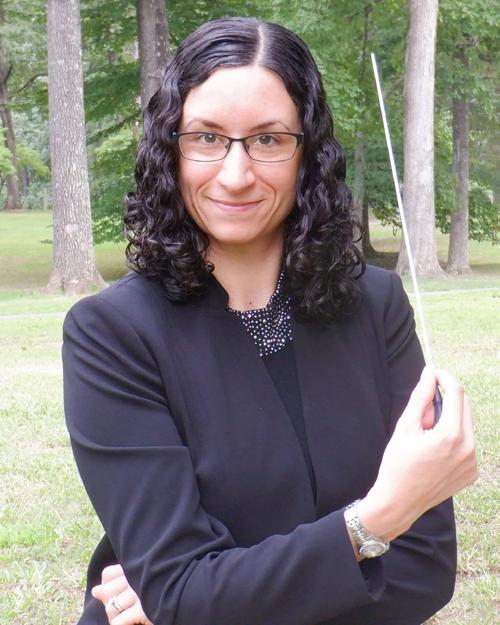
Dr. Alyssa Grey is Director of Wind Studies and Assistant Professor of Music Education at Berry College. She completed undergraduate degrees in Music Education and Music Theory & Composition from the University of Miami where she studied with GRAMMY-Award Winning composer Lansing McLoskey. She received a Master’s degree in Music Education from the Eastman School of Music and a Ph D. from the University of North Texas where she studied wind band conducting with Eugene Migliaro Corporon. Dr. Grey has presented sessions and research with the College Band Directors National Association, National Association for Music Education, Society for Music Teacher Education, College Music Society, GMEA, NJMEA, FMEA, OKMEA, ArkMEA, TMEA, the North Texas Conductors Collegium, the Texas Bandmasters Association, and the Midwest Clinic. She is an active conductor and researcher and has been published in scholarly journals including the Journal of Music Teacher Education, Update: Applications of Research in Music Education, the Music Educators Journal, Teaching Music, the Instrumentalist, and is a contributor to the Teaching Music Through Performance in Band series. Dr. Grey’s Wind Ensemble has performed at the Georgia Music Educators Association State Conference. She also has performed professionally with the Dallas Symphony Chorus for five years under the baton of Jaap van Zweden, conductor of the New York Philharmonic. Dr. Grey currently serves on the Editorial Committee for the Music Educators Journal.

“Where words fail, music speaks.”
- Hans Christian Andersen
